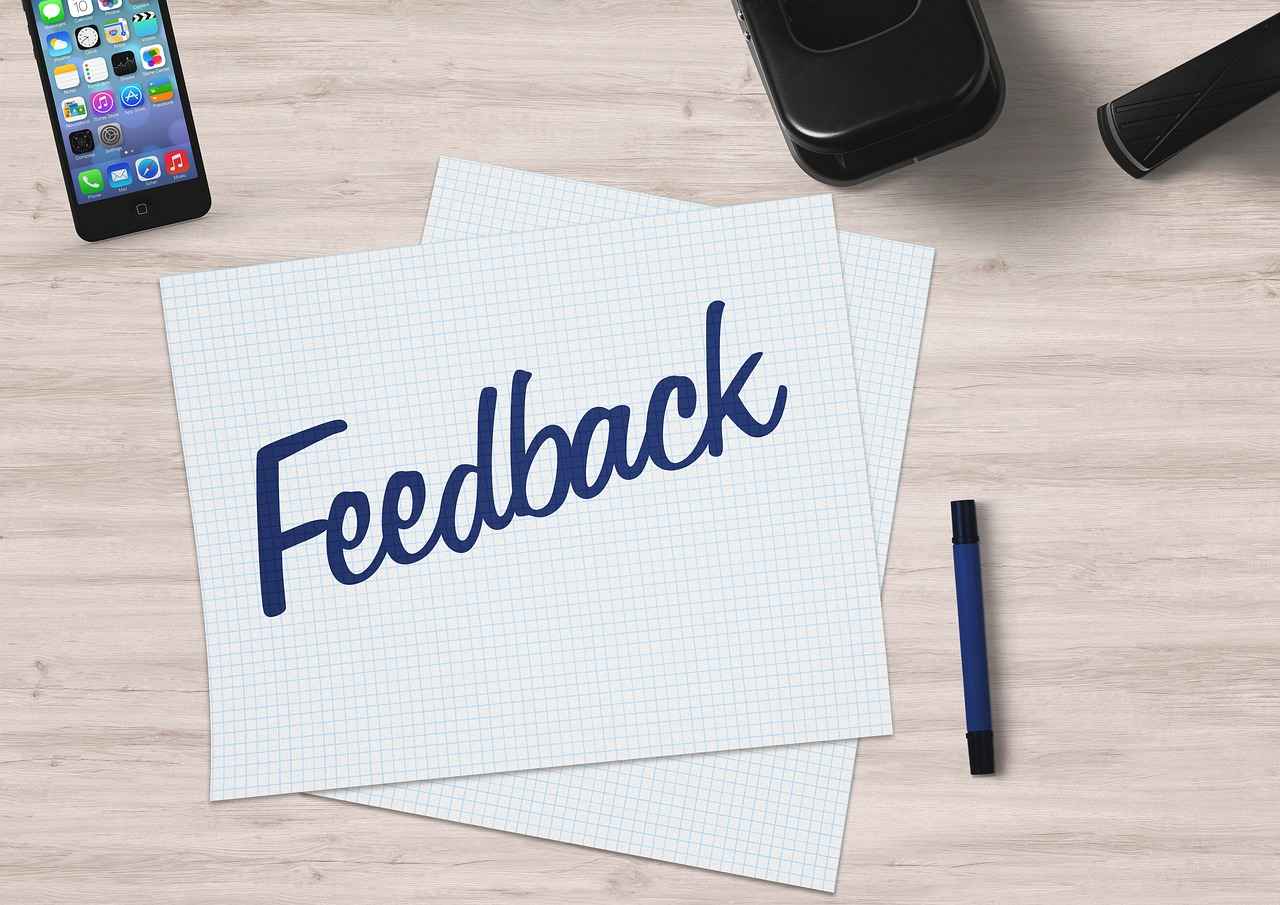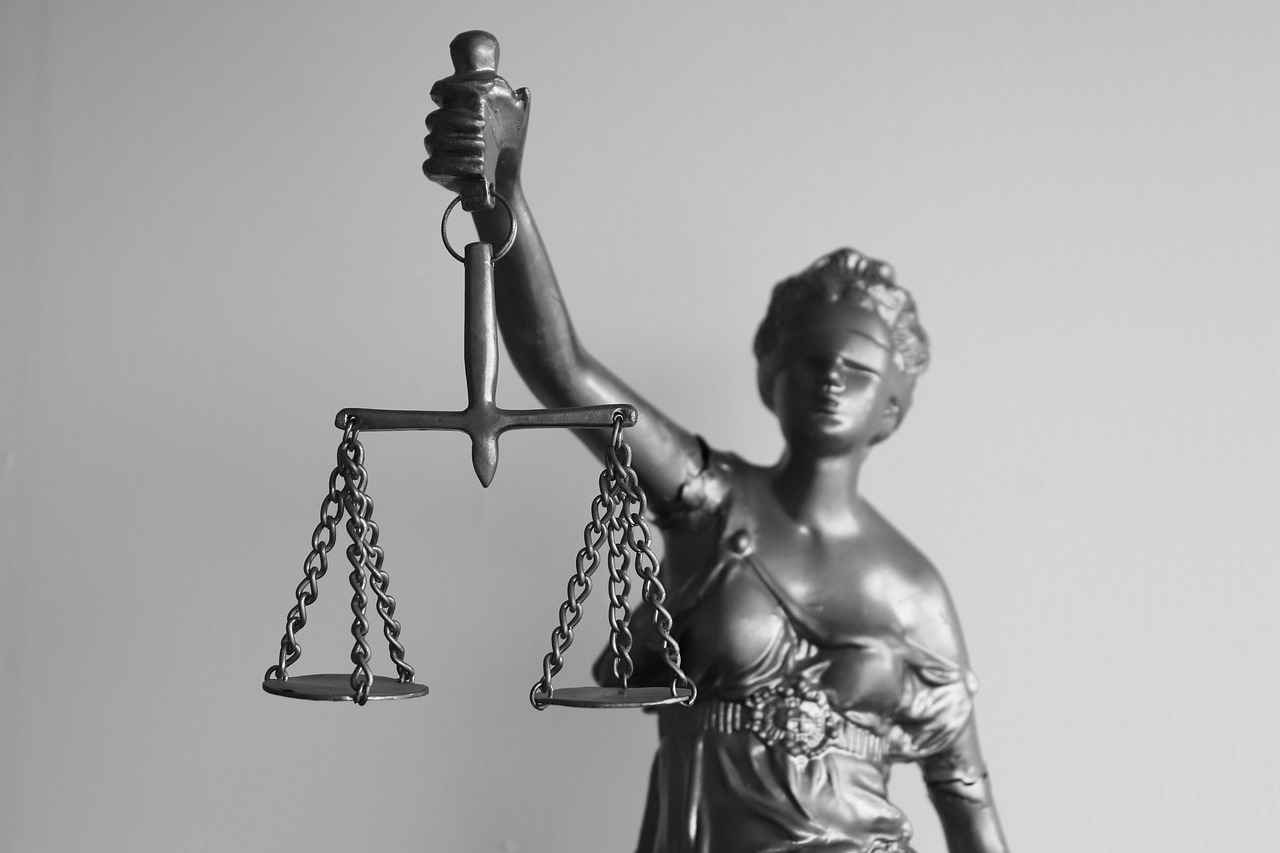This article provides an in-depth guide on finding qualified and trustworthy lawyers for various legal cases in Jacksonville, Florida, with practical insights and expert advice.
Finding the right attorney can be a daunting task, especially in a bustling city like Jacksonville, Florida. With a myriad of legal specialties, understanding the landscape of common legal cases is essential. This guide will help you navigate through the complexities of hiring a lawyer, ensuring you find a qualified professional who can effectively represent your interests.
Understanding Common Legal Cases in Jacksonville
Before hiring a lawyer, it’s essential to understand the types of legal cases prevalent in Jacksonville, including personal injury, family law, and criminal defense. Familiarizing yourself with these areas will not only help you identify the right attorney but also empower you with the knowledge needed to discuss your case confidently.
Personal Injury Cases: What You Need to Know
Personal injury cases are common in Jacksonville. These cases arise when individuals suffer harm due to another’s negligence, encompassing incidents such as car accidents, slip and falls, and workplace injuries. When seeking a personal injury lawyer, look for attorneys with a proven track record in this field. Check their success rates and client testimonials to gauge their effectiveness.
Medical Malpractice: Navigating Complex Legal Terrain
Medical malpractice cases require specialized knowledge. These cases occur when a healthcare professional fails to provide the standard of care, resulting in patient harm. When searching for a medical malpractice attorney, seek professionals with experience in this niche. Consult their credentials and past case outcomes for assurance.
Breach of Contract: Legal Recourse for Violations
Breach of contract cases are prevalent in business and personal transactions. A breach occurs when one party fails to fulfill their contractual obligations, leading to disputes that require legal intervention. When looking for a contract lawyer, prioritize attorneys who specialize in contract law and have experience in your specific industry.
Property Disputes: Resolving Ownership Conflicts
Property disputes can arise from various issues, including boundary disputes and landlord-tenant conflicts. A knowledgeable attorney can help navigate these challenges effectively. Seek attorneys with experience in real estate law and a solid understanding of local property regulations.
Landlord-Tenant Disputes: Know Your Rights
Landlord-tenant disputes are common in Jacksonville. Understanding the legal landscape can help tenants and landlords find appropriate legal representation. Look for attorneys who specialize in housing law and have experience with local regulations.
Defamation Cases: Protecting Your Reputation
Defamation, whether libel or slander, can severely impact personal and professional lives. Finding an attorney who specializes in defamation law is essential for protecting your rights. Seek attorneys with a robust background in media law and prior experience handling defamation cases.
Employment Disputes: Navigating Workplace Conflicts
Employment disputes may arise from wrongful termination, discrimination, or harassment. Finding an attorney experienced in employment law can ensure your rights are protected. Look for attorneys with a strong background in employment law and a history of successful resolutions.
Product Liability Cases: Holding Manufacturers Accountable
Product liability cases arise when consumers are harmed by defective products. An experienced attorney can help you pursue compensation from manufacturers or retailers. Seek attorneys who specialize in consumer protection and have successfully handled product liability cases.
Wrongful Death: Seeking Justice for Lost Loved Ones
Wrongful death cases seek to hold parties accountable for causing fatal injuries. Experienced attorneys can guide families through the complex legal process. Look for attorneys with a strong background in wrongful death cases and a compassionate approach.
Class Action Lawsuits: Joining Forces for Justice
Class action lawsuits allow individuals to band together against larger entities. Finding an attorney experienced in class actions can enhance your chances of success. Seek attorneys who have successfully handled class action lawsuits and understand the complexities involved.
Criminal Defense: Protecting Your Rights
Criminal defense cases require a skilled attorney to navigate the complexities of the legal system. Understanding your rights is essential when facing criminal charges. Look for attorneys with a strong background in criminal law and a history of favorable outcomes for their clients.
Family Law: Navigating Divorce and Custody Issues
Family law encompasses various issues, including divorce, child custody, and support. Finding an experienced family law attorney is vital for achieving favorable outcomes. Seek attorneys with a proven track record in family law and positive client reviews.
Bankruptcy: Seeking Financial Relief
Bankruptcy cases provide individuals and businesses a chance to reorganize financially. Understanding the process and finding a qualified attorney is crucial for success. Look for attorneys specializing in bankruptcy law with a strong understanding of local regulations.
Immigration Cases: Navigating Complex Legal Pathways
Immigration cases can be intricate and require specialized knowledge. Finding an attorney experienced in immigration law is critical for a successful outcome. Seek attorneys with extensive experience in immigration law and a successful track record.
Conclusion
Selecting the right attorney for your legal needs in Jacksonville is crucial. By considering the types of legal cases and following the outlined steps, you can find a qualified professional to represent you effectively.

Understanding Common Legal Cases in Jacksonville
Before hiring a lawyer, it’s essential to understand the types of legal cases prevalent in Jacksonville, including personal injury, family law, and criminal defense. Each of these areas encompasses a variety of specific legal issues that can significantly impact individuals’ lives. Understanding these categories will not only help you identify the right legal representation but also enable you to navigate the complex legal landscape with greater confidence.
In Jacksonville, personal injury cases are among the most frequently encountered legal matters. These cases arise when individuals suffer harm due to the negligence or wrongful actions of others. Common examples include car accidents, slip and fall incidents, and workplace injuries. When seeking a personal injury attorney, it is vital to look for someone who specializes in this field and has a proven track record of successful outcomes. Check their client testimonials and success rates to ensure you are making an informed choice.
Family law is another significant area of legal practice in Jacksonville, covering issues such as divorce, child custody, and spousal support. Family law cases can be emotionally charged and complex, making it crucial to find an attorney who is not only knowledgeable but also compassionate. Look for lawyers who have extensive experience in family law and positive client reviews. Their expertise can greatly influence the outcome of your case, especially in sensitive matters involving children.
Criminal defense is a critical area of law that addresses a wide range of offenses, from theft and drug offenses to violent crimes such as assault and homicide. When facing criminal charges, finding a skilled defense attorney is paramount. Look for attorneys who specialize in criminal law and have a history of favorable outcomes for their clients. Their knowledge of local laws and the legal system can be invaluable in building a robust defense.
In addition to these common legal cases, Jacksonville residents may also encounter issues related to defamation, employment disputes, and property disputes. Defamation cases involve false statements that harm an individual’s reputation, while employment disputes can arise from wrongful termination or discrimination. Property disputes often involve conflicts over ownership or rental agreements. Each of these areas requires specialized legal expertise, making it essential to find attorneys who are well-versed in the specific nuances of the case type.
When searching for a lawyer in Jacksonville, consider utilizing online platforms such as Avvo, FindLaw, or Martindale-Hubbell. These resources provide reviews, ratings, and detailed information about attorneys’ backgrounds and areas of expertise. Additionally, local bar associations can offer referrals to qualified lawyers who practice in your specific area of need.
Another key factor to consider when hiring a lawyer is their credentials. Look for attorneys who have received recognition from reputable legal organizations, such as being listed in Super Lawyers or receiving a high rating from Martindale-Hubbell. These accolades can be indicators of an attorney’s competency and professionalism.
It is also important to be aware of red flags during your search. Avoid attorneys who make unrealistic promises or guarantees about the outcome of your case. Be cautious of those who seem more interested in settling quickly rather than pursuing the best possible outcome for you. A reputable attorney will prioritize your best interests and provide honest assessments of your case.
In summary, understanding the various types of legal cases prevalent in Jacksonville is crucial when hiring a lawyer. By focusing on areas such as personal injury, family law, and criminal defense, and utilizing reputable resources to find qualified attorneys, you can ensure that you receive the best legal representation for your needs. With the right attorney by your side, you can navigate the complexities of the legal system with confidence.

Personal Injury Cases: What You Need to Know
When it comes to personal injury cases, understanding the intricacies of the legal landscape is essential for seeking justice and compensation. In Jacksonville, as well as across the United States, personal injury claims arise from various incidents where individuals suffer harm due to the negligence of others. This includes, but is not limited to, car accidents, slip and falls, workplace injuries, and medical malpractice.
Personal injury law is designed to protect victims and hold the responsible parties accountable. If you find yourself in a situation where you have been injured due to someone else’s actions, it’s crucial to know how to navigate this complex area of law effectively.
Personal injury law encompasses a wide array of cases where an individual suffers physical or psychological harm due to another’s negligence. The most common types of personal injury claims include:
- Car Accidents: Often caused by reckless driving, distracted driving, or driving under the influence.
- Slip and Fall Accidents: These occur when property owners fail to maintain safe conditions on their premises.
- Workplace Injuries: Injuries sustained while on the job, often covered by workers’ compensation laws.
- Medical Malpractice: When healthcare professionals fail to provide adequate care, leading to patient harm.
When searching for a personal injury attorney, consider the following steps to ensure you find a qualified and trustworthy professional:
- Research and Referrals: Start by asking friends, family, or colleagues for referrals. Online reviews and ratings on legal directories can also provide insight into an attorney’s reputation.
- Check Credentials: Look for attorneys who specialize in personal injury law and have a proven track record of successful case outcomes. Verify their credentials through state bar associations.
- Initial Consultations: Many personal injury lawyers offer free consultations. Use this opportunity to discuss your case and gauge their expertise and approach.
- Success Rates: Inquire about their success rates in handling personal injury cases similar to yours. This information can indicate their ability to effectively advocate for your rights.
- Fee Structure: Understand their fee structure, typically based on a contingency fee arrangement, meaning they only get paid if you win your case.
Personal injury cases can present various challenges, including:
- Proving Negligence: It is essential to establish that the other party was negligent and that their actions directly caused your injuries.
- Insurance Companies: Dealing with insurance companies can be daunting, as they often aim to minimize payouts. Having an experienced attorney can help navigate this process.
- Statute of Limitations: Each state has a time limit within which you must file a personal injury claim. Be aware of these deadlines to ensure your case is heard.
Having a knowledgeable attorney by your side can significantly impact the outcome of your personal injury case. They can help gather evidence, negotiate with insurance companies, and represent you in court if necessary. Their expertise can ensure that you receive the compensation you deserve for medical expenses, lost wages, and pain and suffering.
In conclusion, personal injury cases are prevalent in Jacksonville and require a thorough understanding of the legal system to navigate effectively. By taking the time to find a qualified personal injury lawyer, you can ensure that your rights are protected and that you have the best chance of achieving a favorable outcome.
Defining Personal Injury Law
Personal injury law is a crucial area of legal practice that addresses the rights of individuals who have suffered physical, emotional, or psychological harm due to the negligence or wrongful acts of others. This area of law is broad and encompasses a variety of incidents, each requiring a nuanced understanding and specialized legal representation. In this section, we will explore the key components of personal injury law, the types of cases it covers, and the process of finding a qualified attorney to assist you.
Understanding Personal Injury Cases
Personal injury cases arise when an individual is harmed due to someone else’s negligence. This can include a wide range of incidents, such as:
- Car Accidents: One of the most common types of personal injury cases, these occur when a driver’s negligence results in an accident causing injury to another party.
- Slip and Falls: Property owners have a duty to maintain safe conditions. If someone slips and falls due to negligence, they may have a valid claim.
- Workplace Injuries: Employees injured on the job may seek compensation under workers’ compensation laws or through personal injury claims if negligence is involved.
- Medical Malpractice: This occurs when healthcare professionals fail to provide adequate care, resulting in harm to a patient.
- Defective Products: If a product malfunctions and causes injury, the manufacturer or seller may be held liable.
The Importance of Legal Representation
Having a knowledgeable attorney is essential in personal injury cases. A qualified lawyer can help navigate the complexities of the legal system, gather necessary evidence, and advocate on your behalf for fair compensation. They will assess the details of your case, determine liability, and advise you on the best course of action. Additionally, personal injury lawyers often work on a contingency fee basis, meaning they only get paid if you win your case. This arrangement makes it accessible for victims to seek legal help without upfront costs.
Finding the Right Personal Injury Lawyer
To find a competent personal injury attorney, consider the following steps:
- Research Online: Use legal directories like Avvo or Martindale-Hubbell to find lawyers specializing in personal injury cases. Look for reviews and ratings from former clients.
- Check Credentials: Ensure the attorney has the necessary qualifications, such as being licensed to practice in your state and having a good standing with the state bar association.
- Experience Matters: Look for attorneys who have substantial experience specifically in personal injury law. Their familiarity with similar cases can be invaluable.
- Consultation: Many lawyers offer free consultations. Use this opportunity to discuss your case, gauge their expertise, and assess their communication style.
- Ask About Success Rates: Inquire about their track record in personal injury cases. A lawyer with a history of successful settlements or verdicts may be more effective in securing a favorable outcome for you.
Red Flags to Avoid
When selecting a personal injury attorney, be aware of potential red flags:
- Lack of Communication: If the attorney is hard to reach or does not respond promptly, it may indicate how they will handle your case.
- Pressure Tactics: Be wary of lawyers who pressure you to sign contracts or make quick decisions without giving you adequate time to consider your options.
- Unclear Fee Structures: Ensure you fully understand how the attorney charges for their services. Hidden fees or vague agreements can lead to disputes later.
In conclusion, personal injury law is a vital field that provides recourse for individuals harmed by the negligence of others. Understanding the types of cases and knowing how to find a qualified attorney can significantly impact the outcome of your claim. By conducting thorough research, asking the right questions, and being mindful of red flags, you can secure the legal representation you need to advocate for your rights effectively.
Finding a Personal Injury Lawyer
When you are involved in an accident or suffer an injury due to someone else’s negligence, finding the right personal injury lawyer is crucial for securing the compensation you deserve. Here are some essential steps to help you navigate this process effectively.
- Research Their Track Record: Start by looking for attorneys who specialize in personal injury law. A proven track record is essential. Check their success rates in similar cases. Many lawyers display their case results on their websites or in their marketing materials.
- Read Client Testimonials: Client testimonials can provide valuable insights into an attorney’s effectiveness and approach. Look for reviews on platforms like Google, Avvo, or Yelp. Pay attention to comments regarding communication, case outcomes, and overall satisfaction.
- Evaluate Their Experience: Consider the attorney’s experience, particularly in handling cases similar to yours. An attorney with extensive experience in personal injury law will be more adept at navigating the complexities of your case.
- Check for Professional Affiliations: Membership in professional organizations, such as the American Association for Justice (AAJ) or state bar associations, can indicate a commitment to staying informed about legal developments and best practices in personal injury law.
- Assess Communication Skills: During your initial consultation, evaluate how well the attorney communicates. They should be able to explain legal concepts clearly and answer your questions thoroughly. Good communication is vital for a successful attorney-client relationship.
- Understand Their Fee Structure: Most personal injury lawyers work on a contingency fee basis, meaning they only get paid if you win your case. Ensure you understand their fee structure, including any additional costs that may arise during the legal process.
- Schedule Consultations: Many personal injury attorneys offer free initial consultations. Use this opportunity to meet with multiple lawyers, discuss your case, and gauge your comfort level with each attorney. This step is crucial for finding someone you can trust.
Red Flags to Avoid:
- Lack of Transparency: If an attorney is not forthcoming about their fees, experience, or previous case outcomes, consider it a warning sign.
- High Pressure Tactics: Be cautious of lawyers who pressure you into signing contracts or making quick decisions. A reputable attorney will encourage you to take your time and make informed choices.
- Poor Communication: If you find it challenging to get in touch with a lawyer or if they fail to respond to your inquiries promptly, this could indicate a lack of commitment to your case.
In conclusion, finding a competent personal injury lawyer requires thorough research and careful consideration. By following these guidelines, you can increase your chances of hiring a qualified attorney who will effectively advocate for your rights and help you navigate the complexities of personal injury law.

Medical Malpractice: Navigating Complex Legal Terrain
Medical malpractice is a serious issue that arises when healthcare providers fail to meet the standard of care, causing harm to patients. This complex area of law necessitates not only a deep understanding of medical practices but also a thorough grasp of legal principles. If you or a loved one has been a victim of medical negligence, the importance of finding a qualified attorney cannot be overstated. Here, we will explore how to navigate this intricate legal landscape and find the best legal representation for your case.
Understanding Medical Malpractice
Medical malpractice can take many forms, including misdiagnosis, surgical errors, medication mistakes, and failure to provide appropriate treatment. Each case is unique, and the specific circumstances surrounding the incident will play a crucial role in determining liability. Understanding these nuances is essential for both the patient and the attorney who will represent them.
Why Specialized Knowledge Matters
Medical malpractice cases require specialized knowledge due to the interplay between medicine and law. Attorneys must be familiar with medical terminology, practices, and standards of care in order to effectively argue a case. A lawyer with a background in healthcare or extensive experience in medical malpractice cases will have the necessary expertise to assess the situation accurately and build a compelling case.
Finding the Right Medical Malpractice Attorney
- Research Credentials: Look for attorneys who have specialized training in medical malpractice law. Check their educational background, certifications, and any affiliations with professional organizations.
- Experience Matters: Seek out lawyers who have a proven track record in medical malpractice cases. Ask about their past case outcomes and success rates.
- Client Testimonials: Reading reviews from previous clients can provide insight into an attorney’s effectiveness, communication style, and overall client satisfaction.
- Consultations: Many attorneys offer free initial consultations. Use this opportunity to discuss your case, evaluate their approach, and determine if you feel comfortable working with them.
Red Flags to Avoid
When searching for a medical malpractice attorney, be vigilant for red flags that may indicate a less-than-reputable lawyer:
- Lack of Experience: Be cautious of attorneys who claim to handle a wide range of legal issues but lack specific experience in medical malpractice.
- Pressure Tactics: If an attorney pressures you to sign a contract or make a quick decision, it may be a sign of unprofessionalism.
- Poor Communication: If your initial interactions with a lawyer are unresponsive or unclear, consider looking elsewhere.
Utilizing Legal Platforms
In today’s digital age, various online platforms can assist you in finding a qualified medical malpractice attorney. Websites like Avvo and FindLaw allow you to search for lawyers by specialty and location, providing reviews and ratings from clients. Additionally, the National Association of Legal Assistants and local bar associations can provide directories of qualified attorneys in your area.
Conclusion
Finding the right attorney for a medical malpractice case is crucial for achieving a favorable outcome. By understanding the complexities of medical malpractice, recognizing the importance of specialized knowledge, and utilizing available resources, you can navigate the legal terrain more effectively. Remember to conduct thorough research, consult multiple attorneys, and trust your instincts when making your choice.
Understanding Medical Malpractice
Medical malpractice is a serious issue that occurs when a healthcare professional fails to meet the accepted standards of care, leading to harm or injury to a patient. This failure can manifest in various forms, including misdiagnosis, surgical errors, medication mistakes, or inadequate treatment. Understanding the intricacies of medical malpractice is essential for patients who may be victims of such negligence.
In the United States, medical malpractice laws vary by state, but the fundamental principles remain consistent. To establish a case, the injured party must prove the following elements:
- Duty of Care: The healthcare provider had a legal obligation to provide care to the patient.
- Breach of Duty: The provider failed to adhere to the standard of care expected in the medical community.
- Causation: The breach directly caused harm or injury to the patient.
- Damages: The patient suffered actual damages, such as physical pain, emotional distress, or financial losses.
Common examples of medical malpractice include:
- Misdiagnosis or Delayed Diagnosis: When a doctor incorrectly diagnoses a condition or fails to diagnose a condition in a timely manner, resulting in inadequate treatment.
- Surgical Errors: Mistakes made during surgery, such as operating on the wrong site or leaving surgical instruments inside the patient.
- Medication Errors: Incorrect prescriptions, dosages, or administering the wrong medication can lead to severe adverse effects.
- Failure to Obtain Informed Consent: Patients must be adequately informed about the risks and benefits of a procedure before consenting to it.
For individuals considering a medical malpractice claim, it is crucial to seek out a lawyer who specializes in this area of law. Here are some steps to find the right attorney:
- Research and Referrals: Start by asking friends, family, or other professionals for recommendations. Online legal directories can also provide listings of qualified attorneys.
- Check Credentials: Look for attorneys who have experience in medical malpractice cases and are licensed to practice in your state. Verify their standing with the state bar association.
- Review Track Record: Investigate the attorney’s history of handling medical malpractice cases. Look for success rates and client testimonials to gauge their effectiveness.
- Initial Consultations: Many lawyers offer free consultations. Use this opportunity to assess their communication style, knowledge, and approach to your case.
- Discuss Fees: Understand the attorney’s fee structure. Many medical malpractice lawyers work on a contingency fee basis, meaning they only get paid if you win your case.
When selecting a medical malpractice attorney, be wary of red flags such as:
- Lack of Experience: Avoid attorneys who lack a background in medical malpractice law or who have not handled similar cases.
- Pressure Tactics: Be cautious of lawyers who pressure you into signing a contract immediately or who promise a guaranteed outcome.
- Poor Communication: If an attorney is unresponsive or fails to answer your questions satisfactorily, it may indicate a lack of commitment to your case.
In conclusion, understanding medical malpractice is essential for anyone seeking justice after suffering due to a healthcare provider’s negligence. By following these guidelines and conducting thorough research, individuals can find qualified attorneys who will advocate for their rights and help them navigate the complexities of medical malpractice claims.
Choosing the Right Medical Malpractice Attorney
When it comes to navigating the complex world of medical malpractice, selecting the right attorney is crucial for achieving a favorable outcome. Medical malpractice cases can be intricate, often requiring specialized knowledge of both legal and medical standards. Here are some essential factors to consider when choosing a medical malpractice attorney.
- Experience in Medical Law: Look for attorneys who have a robust background in medical law. This includes familiarity with medical terminology, procedures, and the standards of care expected from healthcare professionals. Their understanding of these nuances will be critical in building a strong case.
- Track Record of Success: Investigate the attorney’s history with medical malpractice cases. A successful track record, particularly in cases similar to yours, can provide reassurance. Ask for statistics on past case outcomes, including settlements and verdicts.
- Client Testimonials: Reading reviews and testimonials from previous clients can provide insight into the attorney’s effectiveness and approach. Look for feedback on communication, responsiveness, and overall satisfaction with the legal services provided.
- Consultation Fees: Many attorneys offer free initial consultations. Use this opportunity to gauge their expertise and approach to your case. During the consultation, inquire about their fee structure, including contingency fees, which are common in personal injury cases.
- Professional Affiliations: Check if the attorney is a member of any professional organizations related to medical malpractice or personal injury law. Membership in groups such as the American Association for Justice (AAJ) or local bar associations can indicate a commitment to staying updated on legal developments.
- Communication Style: Effective communication is essential in any attorney-client relationship. During your initial meeting, assess whether the attorney listens to your concerns and explains legal concepts clearly. A good attorney should make you feel comfortable and informed throughout the process.
- Resources and Support Staff: Medical malpractice cases often require extensive research and expert testimony. Ensure that the attorney has the necessary resources and a competent support team to handle the complexities of your case.
- Red Flags to Avoid: Be cautious of attorneys who guarantee specific outcomes, show a lack of transparency regarding fees, or rush through consultations. Trustworthy attorneys will provide realistic expectations and openly discuss potential challenges in your case.
By taking the time to thoroughly vet potential medical malpractice attorneys, you can increase your chances of finding a qualified professional who will advocate effectively for your rights. Remember that a well-informed decision can significantly impact the outcome of your case.

Breach of Contract: Legal Recourse for Violations
Breach of contract cases are prevalent in both business and personal transactions. When one party fails to fulfill their contractual obligations, it can lead to significant disputes that require legal intervention. Understanding how to find an attorney experienced in contract law is essential for effective resolution.
A breach of contract occurs when one party does not perform their duties as outlined in the agreement. This can manifest in various forms, including:
- Failure to deliver goods or services
- Late performance
- Incomplete or substandard work
- Refusal to perform
Recognizing the signs of a breach early can help you take the necessary legal steps to protect your interests.
When searching for a contract lawyer, consider the following steps to ensure you find a qualified professional:
- Specialization: Look for attorneys who specialize in contract law. Their expertise will be invaluable in navigating the complexities of your case.
- Experience: Evaluate their experience in handling similar cases. An attorney with a proven track record in contract disputes can provide insights into the potential outcomes of your case.
- Client Testimonials: Seek out reviews and testimonials from previous clients. This can give you a better understanding of their reputation and effectiveness.
- Consultation: Schedule consultations with potential lawyers. This will allow you to assess their communication style and approach to your specific situation.
- Credentials: Check their educational background and professional affiliations. Membership in legal associations can indicate a commitment to staying updated on contract law.
While searching for a contract lawyer, be aware of potential red flags that may indicate a lack of professionalism or expertise:
- Poor Communication: If an attorney is difficult to reach or does not respond promptly to inquiries, it may be a sign of disorganization.
- Unclear Fee Structures: Be cautious of lawyers who are not transparent about their fees. Ensure you understand their billing practices and any additional costs that may arise.
- Lack of Specialization: Avoid attorneys who claim to handle all types of law without a specific focus on contract law. Specialized knowledge is crucial for effective representation.
- Negative Reviews: Research online for reviews or complaints about the attorney. A pattern of negative feedback can be a significant warning sign.
In many cases, parties may prefer to settle disputes out of court. A skilled contract lawyer can assist in negotiating settlements that are favorable to you. They can help draft settlement agreements that clearly outline the terms and conditions, ensuring that your rights are protected.
If negotiations fail, your attorney can represent you in court. They will prepare the necessary documentation, present evidence, and argue on your behalf. Having an experienced attorney can significantly influence the outcome of your case, as they understand the legal nuances and can effectively advocate for your position.
Finding a knowledgeable and trustworthy attorney for breach of contract cases is crucial for achieving a favorable resolution. By understanding the signs of a breach, knowing how to find the right lawyer, and being aware of red flags, you can navigate the complexities of contract disputes with greater confidence.
Identifying Breach of Contract
A breach of contract is a serious legal matter that can disrupt business operations and personal agreements alike. It occurs when one party fails to meet the obligations outlined in a contract, whether intentionally or unintentionally. Understanding the nuances of a breach is essential for anyone entering into a contractual agreement.
There are two primary types of breaches: material breaches and minor breaches. A material breach is significant enough to undermine the contract’s purpose, allowing the non-breaching party to seek legal remedies. In contrast, a minor breach, while still a violation, does not substantially affect the contract’s overall value, often allowing for partial performance or compensation.
Common causes of breach include:
- Failure to perform obligations: This can happen when one party simply does not fulfill their side of the agreement.
- Delay in performance: Even if a party intends to fulfill their obligation, significant delays can constitute a breach.
- Non-payment: In financial agreements, failure to make payments as scheduled is a frequent cause of breach.
- Misrepresentation: If one party provides false information that induces the other party to enter the contract, it can lead to a breach.
When a breach occurs, the non-breaching party has several options for recourse:
- Negotiation: Often, parties can resolve the issue through direct communication and negotiation, potentially avoiding the need for legal action.
- Mediation: This involves a neutral third party who helps facilitate a resolution without going to court.
- Litigation: If negotiations fail, the non-breaching party may need to file a lawsuit to enforce the contract or seek damages.
To protect yourself from potential breaches, consider the following tips:
- Clear Contract Terms: Ensure that all terms, obligations, and expectations are clearly defined in the contract.
- Document Everything: Keep detailed records of all communications and actions related to the contract.
- Consult an Attorney: Before entering into a contract, having a lawyer review the terms can help identify potential issues.
In summary, understanding the implications of a breach of contract is crucial for anyone involved in legal agreements. By being aware of the types of breaches and the available remedies, individuals can better navigate potential disputes and protect their interests.
Finding a Contract Lawyer
When navigating the complexities of contract law, it is essential to seek out an attorney who not only specializes in this field but also possesses a deep understanding of your specific industry. Contract disputes can arise from various situations, including business agreements, employment contracts, and real estate transactions. Therefore, having a lawyer with relevant experience can significantly influence the outcome of your case.
To begin your search, consider the following strategies:
- Research Specializations: Look for attorneys who specifically list contract law as one of their areas of expertise. Many lawyers will have profiles on their firm’s website or legal directories that detail their practice areas.
- Industry Experience: It is beneficial to find a lawyer who has experience in your industry. For instance, if you are dealing with a contract related to technology, seek out attorneys who have worked with tech companies or have a background in technology law.
- Check Credentials: Verify the attorney’s credentials, including their education, bar admission, and any additional certifications they may have. Membership in professional organizations, such as the American Bar Association or local bar associations, can also be a good indicator of their commitment to the field.
- Client Reviews and Testimonials: Look for reviews from past clients to gauge the attorney’s effectiveness in handling contract disputes. Websites like Avvo, Martindale-Hubbell, and Google Reviews can provide insights into their reputation and client satisfaction.
- Initial Consultations: Many attorneys offer free initial consultations. Use this opportunity to discuss your case and assess their understanding of contract law as it pertains to your situation. Pay attention to their communication style and whether they seem genuinely interested in helping you.
- Negotiation Skills: A good contract lawyer should be skilled in negotiation, as many contract disputes are resolved through settlements rather than litigation. Ask about their approach to negotiation and their past experiences in achieving favorable outcomes for clients.
- Litigation Experience: While many contract disputes can be settled outside of court, it’s crucial to have an attorney who is prepared to litigate if necessary. Inquire about their courtroom experience and success rates in litigation.
Red Flags to Avoid: Be cautious of attorneys who make unrealistic promises about the outcome of your case or who pressure you to make quick decisions. A reputable lawyer will provide you with an honest assessment of your situation and allow you to make informed choices without feeling rushed.
In summary, finding a qualified contract lawyer involves thorough research and careful consideration of their experience, credentials, and approach to handling cases. By following these guidelines, you can enhance your chances of securing effective legal representation that aligns with your specific needs.

Property Disputes: Resolving Ownership Conflicts
Property disputes are a significant source of conflict among property owners, tenants, and landlords. These disputes can arise from various issues, including boundary disagreements, landlord-tenant conflicts, easements, and zoning laws. Understanding the complexities of property law is crucial for anyone involved in such disputes. Engaging a knowledgeable attorney can make a substantial difference in navigating these challenges effectively.
Property disputes can manifest in several forms:
- Boundary Disputes: These disputes occur when two property owners disagree on the exact location of their property lines. It often involves surveying and legal descriptions.
- Landlord-Tenant Conflicts: Issues may arise over lease agreements, security deposits, maintenance responsibilities, and eviction processes.
- Easements: Conflicts may arise regarding the right to use a portion of another’s property for a specific purpose, such as access to a roadway.
- Zoning Issues: Disputes can occur when property owners believe zoning laws are being violated, affecting property use and value.
When seeking legal representation for property disputes, consider the following:
- Experience: Look for attorneys who specialize in real estate law and have experience handling similar disputes. Their familiarity with local laws and regulations can be invaluable.
- Track Record: Research their success rates in resolving property disputes. Client testimonials and case outcomes can provide insights into their effectiveness.
- Communication Skills: Choose an attorney who can clearly explain complex legal concepts and keep you informed throughout the process.
- Consultation: Many attorneys offer free initial consultations. Use this opportunity to gauge their expertise and determine if they are a good fit for your case.
When hiring a property dispute attorney, be on the lookout for:
- Lack of Specialization: Avoid attorneys who do not specialize in real estate law, as they may not have the necessary knowledge to handle your case effectively.
- Poor Communication: If an attorney is difficult to reach or fails to respond promptly to inquiries, this may indicate a lack of commitment to your case.
- Unclear Fee Structures: Be cautious of attorneys who do not provide clear information about their fees and billing practices.
Property disputes can be complex and emotionally charged. Having the right attorney can significantly impact the outcome of your case. By understanding the types of property disputes, knowing how to choose a qualified attorney, and being aware of potential red flags, you can navigate these challenges more effectively.
Types of Property Disputes
Property disputes are a common legal issue that can arise from a variety of circumstances. They often involve conflicts over ownership, use, and rights associated with real estate. Understanding the nuances of these disputes is essential for anyone facing such challenges. In this section, we will explore the different types of property disputes, their implications, and how to effectively navigate them with the help of qualified legal representation.
Property disputes can arise from several issues, including but not limited to:
- Easements: These are legal rights to use another person’s land for a specific purpose, such as accessing a road or utility lines. Disputes may occur when one party believes their easement rights are being violated.
- Zoning Laws: Local governments impose zoning laws to regulate land use. Conflicts can arise when property owners seek to use their land in a manner that contradicts these regulations, leading to disputes with neighbors or the municipality.
- Tenant Rights: Disagreements between landlords and tenants can lead to disputes over lease agreements, security deposits, or eviction processes. Understanding tenant rights is crucial for both parties.
- Boundary Disputes: These occur when neighbors disagree on the precise location of property lines. Such disputes can escalate if not resolved amicably, potentially leading to legal action.
- Adverse Possession: This legal doctrine allows a person to claim ownership of land under certain conditions, often leading to disputes when the original owner contests the claim.
- Homeowners Association (HOA) Conflicts: Homeowners may face disputes with their HOA over rules, fees, or property modifications. Understanding the governing documents is key to resolving these issues.
Finding the right attorney to handle property disputes is crucial for achieving a favorable outcome. Here are some steps to consider:
- Specialization: Look for attorneys who specialize in real estate law. Their expertise will provide invaluable insights into local regulations and property laws.
- Experience: Seek lawyers with a proven track record in handling property disputes. Ask about their previous cases and outcomes to gauge their effectiveness.
- Client Reviews: Check online reviews and testimonials from former clients. Positive feedback can indicate a lawyer’s ability to handle similar cases.
- Consultation: Schedule consultations with potential attorneys. This will allow you to discuss your case and assess their approach and communication style.
- Transparency: Ensure that the attorney is transparent about their fees and billing practices. A clear understanding of costs will help avoid surprises later on.
In conclusion, property disputes can be complex and multifaceted. Understanding the types of disputes and the importance of hiring a qualified attorney can significantly impact the resolution of your case. By following the outlined steps, individuals can find legal representation that aligns with their specific needs and goals.
Hiring a Property Dispute Attorney
When faced with property disputes, it is crucial to have the right legal representation to navigate the complexities of real estate law. Hiring a property dispute attorney can make a significant difference in the resolution of your case. Here are some important factors to consider when searching for an attorney who specializes in property disputes.
- Experience in Real Estate Law: Look for attorneys who have a robust background in real estate law. Their experience will help them to understand the intricacies of property disputes, including zoning laws, easements, and tenant rights.
- Local Knowledge: An attorney with a solid understanding of local property regulations is invaluable. Each state and municipality may have different laws governing property rights, so familiarity with local statutes is essential.
- Track Record of Success: Assess the attorney’s history of handling property dispute cases. A successful track record can indicate their ability to resolve cases favorably for their clients.
- Client Testimonials: Reading reviews and testimonials from previous clients can provide insight into the attorney’s effectiveness and approach to handling cases.
- Communication Skills: Effective communication is key in legal matters. Ensure that the attorney you choose is responsive and able to explain complex legal issues in a way that is easy to understand.
- Consultation Availability: Many attorneys offer initial consultations. Take advantage of this opportunity to gauge their expertise, ask questions, and determine if they are a good fit for your needs.
Additionally, be aware of potential red flags when hiring a property dispute attorney:
- High Pressure Sales Tactics: If an attorney pressures you to sign a contract or make a quick decision, this could be a warning sign. A reputable attorney will provide you with the information you need to make an informed choice.
- Lack of Transparency: Be cautious of attorneys who are not upfront about their fees or the potential costs associated with your case. Clear communication about billing practices is essential.
- Limited Experience: While every attorney has to start somewhere, hiring someone with minimal experience in property disputes may not be in your best interest, especially if the case is complex.
In conclusion, finding the right property dispute attorney involves careful consideration of their experience, local knowledge, and communication skills. By conducting thorough research and being aware of red flags, you can make an informed decision that will help you navigate the challenges of property disputes effectively.

Landlord-Tenant Disputes: Know Your Rights
Landlord-tenant disputes are a prevalent issue in Jacksonville, Florida, as well as across the United States. These conflicts often arise from misunderstandings regarding lease agreements, maintenance responsibilities, security deposits, and eviction processes. For both landlords and tenants, understanding the legal landscape is crucial to effectively resolve these disputes and protect their rights.
Understanding Your Rights as a Tenant
As a tenant, you have specific rights protected under state and federal law. These rights typically include the right to a habitable living space, protection against unjust eviction, and the right to privacy. Familiarizing yourself with the Florida Residential Landlord and Tenant Act can provide clarity on your rights and responsibilities. For instance, landlords are required to maintain the property in a safe and livable condition, which includes addressing necessary repairs in a timely manner.
Common Disputes Between Landlords and Tenants
- Lease Agreement Issues: Disputes often arise over the terms of the lease, including rent increases, lease renewals, and the conditions for terminating the lease.
- Security Deposits: Conflicts may occur regarding the return of security deposits, particularly if tenants believe deductions are unjustified.
- Eviction Processes: Evictions can lead to disputes, especially if tenants believe they have been wrongfully evicted or not given proper notice.
Finding the Right Lawyer for Landlord-Tenant Issues
When facing a landlord-tenant dispute, it is essential to seek legal representation that specializes in housing law. Here are some steps to find the right attorney:
- Research Local Attorneys: Utilize online platforms such as Avvo and FindLaw to find attorneys with expertise in landlord-tenant law in your area.
- Check Credentials: Look for attorneys who are members of the American Bar Association and local bar associations, as these affiliations often indicate a commitment to ethical practices and ongoing education.
- Read Reviews: Client testimonials can provide insights into an attorney’s effectiveness and communication style. Look for reviews that mention similar cases to yours.
- Consultation: Many attorneys offer free consultations. Use this opportunity to discuss your case and assess whether the lawyer understands your concerns and has a strategy for your situation.
Red Flags to Avoid When Hiring a Lawyer
- Lack of Experience: Be cautious of attorneys who do not have a proven track record in landlord-tenant disputes.
- Unclear Fee Structures: Ensure that the attorney provides a clear explanation of their fees and any additional costs that may arise during your case.
- Poor Communication: If an attorney is difficult to reach or does not respond promptly to your inquiries, this may indicate a lack of commitment to your case.
Conclusion
Landlord-tenant disputes can be complex and emotionally charged. However, by understanding your rights and knowing how to find qualified legal representation, you can navigate these challenges more effectively. Whether you are a landlord or a tenant, seeking the right attorney can make a significant difference in the outcome of your case.
Common Landlord-Tenant Issues
Landlord-tenant disputes are a significant aspect of rental agreements, and they can arise from a variety of issues. In Jacksonville, Florida, as well as other urban areas, understanding your rights and responsibilities is essential for both parties involved in a lease. Common disputes often revolve around lease agreements, security deposits, and the eviction process. Knowing your rights is crucial in these situations, as it can help prevent misunderstandings and legal complications.
Lease agreements are legally binding contracts that outline the responsibilities of both landlords and tenants. Disputes may arise when one party believes the terms of the lease have been violated. Common issues include:
- Failure to Maintain Property: Tenants may claim that landlords are not fulfilling their responsibilities to keep the property in a habitable condition.
- Unauthorized Charges: Landlords may impose fees that are not outlined in the lease, leading to disputes over what is considered acceptable.
- Lease Violations: Tenants may be accused of violating lease terms, such as having unauthorized pets or guests.
Security deposits are often a source of contention between landlords and tenants. Florida law requires landlords to return security deposits within a specific timeframe, usually 15 days after the tenant vacates the property. Disputes can occur over:
- Withholding Deposits: Landlords may withhold part or all of the deposit for damages that tenants believe are normal wear and tear.
- Failure to Provide Itemized Statements: Landlords must provide documentation detailing any deductions made from the security deposit.
Eviction is another common issue that can lead to significant disputes. In Jacksonville, landlords must follow specific legal procedures to evict a tenant, which includes:
- Notice Requirements: Landlords must provide written notice to tenants, stating the reason for eviction and giving them a chance to remedy the situation.
- Court Proceedings: If the tenant does not comply, landlords must file an eviction lawsuit, and the tenant has the right to defend themselves in court.
If disputes escalate, seeking legal assistance is essential. Here are some tips for finding a qualified attorney:
- Specialization: Look for attorneys who specialize in landlord-tenant law, as they will have the most relevant experience.
- Local Knowledge: Choose a lawyer familiar with Jacksonville’s housing laws and regulations to ensure they can navigate the local legal landscape effectively.
- Client Reviews: Read testimonials and reviews from previous clients to gauge the attorney’s effectiveness and client satisfaction.
- Consultation: Many attorneys offer free initial consultations. Use this opportunity to discuss your case and assess whether the attorney is a good fit.
In summary, understanding common landlord-tenant issues is vital for both parties involved. By knowing your rights and responsibilities, and by seeking the appropriate legal help when necessary, you can navigate disputes more effectively and protect your interests.
Finding a Lawyer for Landlord-Tenant Issues
When facing landlord-tenant issues, whether you are a tenant or a landlord, having the right legal representation is crucial. The complexities of housing law can often lead to disputes that require professional intervention. Therefore, it is essential to find an attorney who specializes in housing law and understands local regulations. Here are some practical steps to help you find a qualified lawyer for your landlord-tenant issues.
- Identify Your Specific Needs: Determine whether you need legal assistance as a tenant or a landlord. Different issues may arise, such as eviction, security deposit disputes, or lease violations. Knowing your specific needs will guide your search for the right attorney.
- Research Local Attorneys: Start by searching for attorneys in your area who specialize in housing law. Use online platforms such as Avvo, FindLaw, or Nolo to find reputable lawyers with expertise in landlord-tenant disputes.
- Check Credentials: Look for attorneys who are members of professional organizations such as the American Bar Association or the National Association of Realtors. These affiliations often indicate a commitment to staying updated on housing laws and regulations.
- Read Reviews and Testimonials: Client reviews can provide insight into an attorney’s effectiveness. Look for testimonials on their website or third-party review platforms to gauge their success rate in handling similar cases.
- Schedule Consultations: Many attorneys offer free initial consultations. Use this opportunity to discuss your case and assess their approach. Pay attention to how well they communicate and whether they take the time to understand your situation.
- Discuss Fees: Understand the attorney’s fee structure before hiring. Some may charge hourly rates, while others may work on a flat fee or contingency basis. Make sure you are comfortable with the financial arrangement.
- Assess Their Experience: Inquire about their experience with cases similar to yours. An attorney with a proven track record in landlord-tenant disputes will be more equipped to handle your case effectively.
- Evaluate Communication Skills: A good attorney should be able to explain complex legal terms in a way that you can understand. Effective communication is key to ensuring you are informed throughout the legal process.
- Trust Your Instincts: Finally, trust your gut feeling. If you feel comfortable and confident in an attorney’s abilities, it’s likely a good match.
In summary, finding the right lawyer for landlord-tenant issues involves thorough research and consideration of various factors. By following these steps, you can ensure that you select a qualified attorney who can effectively advocate for your rights and help resolve your disputes.

Defamation Cases: Protecting Your Reputation
Defamation cases, which encompass both libel (written statements) and slander (spoken statements), are significant legal issues that can have a profound impact on an individual’s personal and professional life. In today’s digital age, where information spreads rapidly, the potential for damaging false statements is greater than ever. Therefore, understanding the intricacies of defamation law is crucial for anyone who believes their reputation has been harmed by untrue statements.
Defamation is defined as a false statement presented as a fact that injures a party’s reputation. To successfully claim defamation, the plaintiff must prove that the statement was false, damaging, and made with a certain level of fault. The standards for public figures are higher; they must demonstrate actual malice, meaning the statement was made with knowledge of its falsity or with reckless disregard for the truth.
- Libel: This pertains to written or published defamatory statements. Examples include false articles, blog posts, or social media posts that damage someone’s reputation.
- Slander: This involves spoken defamatory statements, such as false comments made in person or over the airwaves that harm an individual’s reputation.
When seeking legal representation for a defamation case, it is essential to find an attorney who specializes in media law or defamation law. Here are some practical tips for finding the right lawyer:
- Look for Experience: Seek attorneys with a proven track record in handling defamation cases. Check their history of verdicts and settlements to gauge their effectiveness.
- Check Credentials: Verify their educational background and any relevant certifications or memberships in legal associations focused on media law.
- Read Reviews: Online reviews and testimonials can provide insight into the attorney’s reputation and client satisfaction.
- Consultation: Many attorneys offer free initial consultations. Use this opportunity to discuss your case and evaluate their approach.
- Assess Communication: A good attorney should communicate clearly and promptly. Ensure you feel comfortable discussing your concerns with them.
While searching for a defamation attorney, be wary of certain red flags that may indicate a less-than-reputable lawyer:
- Guarantees of Success: No attorney can guarantee a win in a defamation case. Be cautious of those who make such promises.
- Lack of Transparency: If an attorney is unwilling to discuss their fees or provide clear information about the process, it may be a warning sign.
- Poor Communication: If you struggle to get in touch with the attorney or receive delayed responses during the consultation phase, consider looking elsewhere.
Once you’ve chosen a qualified attorney, they will likely employ various legal strategies to build your case. These may include:
- Gathering Evidence: Collecting all relevant evidence, such as documents, witness statements, and expert opinions to substantiate your claims.
- Proving Malice: For public figures, demonstrating that the statement was made with actual malice is crucial. This often involves showing the defendant’s intent or negligence.
- Negotiation: Many defamation cases are settled out of court. Your attorney may negotiate a settlement that compensates you for damages without the need for a lengthy trial.
Defamation cases can be complex and emotionally charged. It is vital to have a knowledgeable attorney who understands the nuances of defamation law and can effectively advocate for your rights. By following the steps outlined above, you can find a qualified legal professional who will help you navigate the challenging landscape of defamation claims and work towards protecting your reputation.
Understanding Defamation Law
Defamation is a legal term that refers to false statements made about an individual or organization that can harm their reputation. In the realm of defamation law, it is crucial to differentiate between two primary forms: libel and slander. Libel pertains to written defamation, while slander relates to spoken defamatory statements. Understanding these nuances is essential for anyone considering pursuing a defamation case.
To establish a defamation claim, the plaintiff must generally prove four key elements:
- False Statement: The statement in question must be false. Truth is an absolute defense against defamation.
- Publication: The false statement must be published or communicated to a third party.
- Fault: Depending on the plaintiff’s status (public figure or private individual), they must demonstrate negligence or actual malice.
- Damages: The plaintiff must show that the false statement caused harm, such as a damaged reputation or emotional distress.
When it comes to pursuing a defamation case, the first step is to consult with a qualified attorney who specializes in defamation law. Here are some practical tips for finding the right legal representation:
1. Look for attorneys with a strong background in media law.2. Check their track record in handling defamation cases.3. Review client testimonials and case outcomes.4. Ensure they understand the nuances of libel and slander.5. Ask about their approach to building a strong case.
In major metropolitan areas such as New York City, Los Angeles, and Chicago, there are numerous platforms available to help you find qualified attorneys:
- Legal Referral Services: Many state bar associations offer referral services that can connect you with reputable attorneys.
- Online Legal Directories: Websites like Avvo and Martindale-Hubbell provide ratings, reviews, and contact information for attorneys.
- Social Media and Professional Networks: LinkedIn can be a valuable tool for researching attorneys and viewing their professional backgrounds.
Additionally, when evaluating potential attorneys, pay attention to red flags that could indicate a lack of professionalism or expertise:
- Lack of Specialization: Avoid attorneys who do not specialize in defamation law, as this area requires specific knowledge and experience.
- Unclear Fee Structures: Be wary of lawyers who do not provide transparent pricing or who demand large upfront fees without a clear explanation.
- Poor Communication: An attorney who is unresponsive or difficult to communicate with may not be the best choice.
In conclusion, understanding defamation law is essential for protecting one’s reputation. By knowing the elements of a defamation claim and following the outlined steps to find a qualified attorney, individuals can navigate this complex area of law effectively. Whether you are in a bustling city like Houston or a smaller community, the right legal representation can make all the difference in the outcome of your case.
Choosing a Defamation Attorney
When it comes to defamation cases, whether they involve libel (written statements) or slander (spoken statements), seeking the right legal representation is paramount. The impact of defamation can be profound, affecting both personal and professional reputations. Therefore, it is essential to find an attorney who specializes in this area of law and has a proven track record of success.
One of the first steps in is to seek professionals with a robust background in media law. This specialization is crucial because defamation cases often involve complex issues related to freedom of speech, public interest, and the nuances of what constitutes a defamatory statement. An attorney well-versed in media law will have the expertise to navigate these intricacies effectively.
Additionally, prior experience in handling defamation cases is vital. Look for attorneys who have successfully represented clients in similar situations. Their expertise will be crucial in building a strong case, as they will understand the strategies required to prove that a statement was false and damaging. You can assess an attorney’s experience by reviewing their case history, client testimonials, and any relevant publications or media appearances.
Another essential factor to consider is the attorney’s approach to communication and client service. A good defamation attorney should be responsive, willing to explain legal concepts clearly, and able to provide a realistic assessment of your case. During initial consultations, pay attention to how they address your concerns and whether they take the time to understand the specifics of your situation.
Furthermore, consider the attorney’s reputation within the legal community. Look for those who are recognized by their peers for their expertise in defamation law. Membership in professional organizations, such as the American Bar Association or local bar associations, can indicate a commitment to staying updated on legal developments and best practices.
When searching for an attorney, online platforms can also be valuable resources. Websites like Avvo, FindLaw, and Martindale-Hubbell provide ratings, reviews, and detailed profiles of attorneys, helping you make informed decisions based on their qualifications and client feedback.
Finally, be cautious of red flags when selecting a defamation attorney. Avoid attorneys who make unrealistic promises about outcomes or those who pressure you into making quick decisions. The legal landscape can be unpredictable, and a reputable attorney will provide honest assessments without overpromising results.
In summary, choosing the right defamation attorney involves thorough research and consideration of their background in media law, experience with similar cases, communication style, reputation, and the use of reliable resources. By taking these steps, you can ensure that you have a strong advocate to protect your rights and reputation in the face of defamation.

Employment Disputes: Navigating Workplace Conflicts
Employment disputes can significantly impact both employees and employers, often leading to a stressful and complicated legal process. These disputes may arise from various issues, including wrongful termination, discrimination, harassment, and wage disputes. Understanding how to navigate these conflicts is crucial for protecting your rights and ensuring a fair resolution.
Common types of employment disputes include:
- Wrongful Termination: This occurs when an employee is fired for reasons that violate labor laws or contractual agreements.
- Discrimination Claims: These claims arise when an employee faces unfair treatment based on race, gender, age, or disability.
- Harassment: This includes any unwanted behavior that creates a hostile work environment, often related to discrimination.
- Wage Theft: This involves employers failing to pay employees their rightful wages, including overtime and minimum wage violations.
When searching for an attorney experienced in employment law, consider the following steps:
- Research and Referrals: Start by asking friends, family, or colleagues for recommendations. Online platforms such as Avvo and FindLaw can also provide valuable insights and reviews.
- Check Credentials: Look for attorneys with a strong background in employment law. Verify their education, bar association membership, and any certifications related to labor law.
- Experience Matters: Choose lawyers who have handled cases similar to yours. Their experience can significantly influence the outcome of your case.
- Consultations: Many attorneys offer free consultations. Use this opportunity to gauge their understanding of your situation and their approach to handling your case.
When hiring an employment lawyer, it’s essential to be aware of potential red flags:
- Lack of Communication: If an attorney is unresponsive or fails to provide clear answers during initial consultations, it may indicate future communication issues.
- Unrealistic Promises: Be cautious of lawyers who guarantee specific outcomes. Legal cases can be unpredictable, and no attorney can assure victory.
- High Pressure Tactics: If you feel pressured to sign contracts or make quick decisions, it’s a sign to reconsider your choice.
Employment law is a complex field that varies by state and can include federal regulations. Familiarizing yourself with the relevant laws can empower you during disputes. Key laws include:
- The Civil Rights Act: Prohibits discrimination based on race, color, religion, sex, or national origin.
- The Fair Labor Standards Act (FLSA): Governs minimum wage and overtime pay.
- The Family and Medical Leave Act (FMLA): Allows eligible employees to take unpaid leave for specific family and medical reasons without fear of losing their job.
Effective resolution strategies can help mitigate the stress of employment disputes:
- Open Communication: Attempt to resolve issues directly with your employer. Open dialogue can sometimes lead to an amicable solution.
- Mediation: Consider mediation as a less adversarial approach to resolving disputes. A neutral third party can help facilitate discussions and negotiations.
- Legal Action: If other methods fail, pursuing legal action may be necessary. Ensure you have a knowledgeable attorney to guide you through the process.
In conclusion, navigating employment disputes requires a thorough understanding of your rights and the legal landscape. By finding a qualified attorney and employing effective strategies, you can work towards a favorable resolution.
Types of Employment Disputes
Employment disputes are a significant aspect of labor law, affecting both employees and employers. Understanding the various types of employment disputes can be crucial for individuals seeking legal recourse or employers looking to mitigate risks. This section will explore the most common types of employment disputes and provide guidance on how to find the right legal representation.
Common employment disputes include wage theft, discrimination claims, and wrongful termination. Understanding the specifics of your situation can help in selecting the right legal counsel.
- Wage Theft: This occurs when employers fail to pay employees their due wages, overtime, or benefits. Employees may be entitled to back pay and damages if they can prove wage theft.
- Discrimination Claims: Employees may face discrimination based on race, gender, age, or disability. Such cases often require a thorough investigation and a strong legal strategy to prove the employer’s bias.
- Wrongful Termination: Employees who are fired for illegal reasons—such as retaliation for reporting workplace violations or discrimination—may have grounds for a wrongful termination lawsuit.
To effectively navigate these disputes, individuals should seek legal counsel with a background in employment law. Here are some practical tips for finding the right attorney:
When searching for an employment lawyer, consider the following:
- Specialization: Look for attorneys who specialize in employment law. They should have experience handling cases similar to yours.
- Reputation: Check online reviews, ratings, and testimonials. Websites like Avvo and Leagle can provide insights into an attorney’s reputation and past performance.
- Consultations: Many lawyers offer free consultations. Use this opportunity to discuss your case and gauge their understanding and approach.
- Credentials: Verify their education, bar association membership, and any relevant certifications. Membership in organizations like the National Employment Lawyers Association can indicate a commitment to the field.
In major metropolitan areas such as New York City, Los Angeles, and Chicago, the competition among lawyers can be intense. Here are some additional strategies to find a qualified attorney:
- Networking: Ask for referrals from friends, family, or colleagues who have faced similar issues. Personal recommendations can lead to trustworthy legal counsel.
- Legal Aid Organizations: In larger cities, there are often legal aid organizations that provide assistance to individuals facing employment disputes. These organizations can help connect you with qualified attorneys.
- Online Platforms: Utilize platforms like FindLaw or Lawyers.com to search for employment lawyers in your area.
When meeting with potential lawyers, be prepared to discuss the details of your case. Bring any relevant documentation, such as employment contracts, pay stubs, and correspondence related to your dispute. This information will help the attorney assess your situation accurately.
Lastly, be aware of red flags when hiring a lawyer. Avoid attorneys who guarantee outcomes, pressure you into signing contracts quickly, or lack clear communication. A reputable lawyer will provide honest assessments and work collaboratively with you.
In conclusion, understanding the types of employment disputes and knowing how to find the right legal representation are crucial steps for anyone facing workplace issues. By following these guidelines, individuals can navigate the complexities of employment law more effectively.
Finding an Employment Lawyer
When facing employment-related issues, it is crucial to find an attorney who specializes in this area of law. Employment law encompasses a wide range of disputes, including wrongful termination, discrimination, harassment, and wage theft. A qualified employment lawyer can help you navigate these complex issues and protect your rights in the workplace.
Understanding Employment Law
Employment law varies significantly by state and can involve federal regulations as well. It covers not only the rights of employees but also the obligations of employers. Familiarizing yourself with the basic tenets of employment law can empower you to make informed decisions when seeking legal representation.
Look for Specialized Experience
When searching for an employment lawyer, prioritize those with a strong background in employment law. Experience matters; attorneys who have successfully handled cases similar to yours will be better equipped to advocate on your behalf. Look for lawyers who have represented clients in cases involving:
- Wrongful termination
- Workplace discrimination
- Harassment claims
- Wage and hour disputes
- Employee benefits issues
Assessing Credentials and Track Record
Check the lawyer’s credentials, including their education, years of practice, and any relevant certifications. A good employment lawyer should also have a proven track record of successful resolutions, whether through settlements or litigation. Look for client testimonials and case results to gauge their effectiveness.
Utilizing Online Legal Platforms
In today’s digital age, numerous online platforms can help you find qualified employment lawyers. Websites like Avvo, FindLaw, and Justia allow you to search for attorneys based on their practice areas and client reviews. These platforms often provide ratings, which can be helpful in making your decision.
Consultations and Initial Meetings
Most attorneys offer free initial consultations. Take advantage of this opportunity to discuss your case and evaluate the lawyer’s communication style and approach. Prepare a list of questions to ask during the meeting, such as:
- What is your experience with cases like mine?
- What are the potential outcomes of my case?
- How do you charge for your services?
Red Flags to Avoid
While searching for an employment lawyer, be vigilant for red flags that may indicate a less-than-reputable attorney. Avoid lawyers who:
- Make unrealistic promises about outcomes
- Are evasive about their fees and billing practices
- Have poor communication skills
- Show little interest in your case during the consultation
Networking and Referrals
Another effective way to find a reliable employment lawyer is through networking. Ask friends, family, or colleagues if they have any recommendations. Personal referrals can provide insight into the lawyer’s character and capabilities, making it easier to trust your choice.
Conclusion
Finding the right employment lawyer is essential for effectively addressing workplace conflicts. By prioritizing specialized experience, assessing credentials, utilizing online platforms, and being aware of red flags, you can make an informed decision that best suits your needs.

Product Liability Cases: Holding Manufacturers Accountable
Product liability cases are a critical aspect of consumer protection law, arising when individuals suffer injuries or damages due to defective products. These cases can stem from various issues, including design defects, manufacturing defects, and inadequate warnings. Understanding the intricacies of product liability law is essential for consumers seeking justice and compensation.
When a consumer is harmed by a defective product, they may pursue legal action against the manufacturer, distributor, or retailer. This area of law is designed not only to compensate victims but also to encourage manufacturers to maintain high safety standards. In product liability cases, the burden is often on the plaintiff to demonstrate that the product was indeed defective and that the defect directly caused their injuries.
To build a strong case, it is vital to gather evidence, including:
- Documentation of the Injury: Medical records, photographs of injuries, and any other relevant documentation.
- Product Evidence: The defective product itself, along with packaging and instructions.
- Witness Statements: Testimonies from individuals who witnessed the incident or have relevant information.
Finding the right attorney to handle a product liability case is crucial. Here are some steps to consider:
- Specialization: Look for attorneys who specialize in product liability and consumer protection law. Their expertise can significantly influence the outcome of your case.
- Experience: Seek lawyers with a proven track record in handling similar cases. Ask about their success rates and previous settlements or verdicts.
- Client Reviews: Read testimonials and reviews from former clients to gauge their satisfaction with the attorney’s services.
- Consultation: Many attorneys offer free initial consultations. Use this opportunity to discuss your case and assess the attorney’s approach.
In major metropolitan areas like New York City, Los Angeles, and Chicago, there are several resources available to help individuals find qualified attorneys:
- Legal Directories: Websites like Avvo and FindLaw provide listings of attorneys by specialty and location.
- Bar Associations: Local or state bar associations often have referral services that can connect you to qualified attorneys.
- Word of Mouth: Personal recommendations from friends or family can be invaluable in finding trustworthy legal representation.
While searching for a product liability attorney, be cautious of potential red flags:
- Lack of Transparency: Be wary of attorneys who are not upfront about their fees or case strategies.
- High Pressure Tactics: Avoid lawyers who pressure you to sign contracts or make quick decisions.
- Poor Communication: If an attorney is difficult to reach or does not respond promptly to inquiries, this could indicate future issues.
Ultimately, product liability cases can be complex, requiring a skilled attorney who understands the nuances of the law and can effectively advocate for your rights. By following the outlined steps and being diligent in your search, you can find a qualified attorney who will work tirelessly to hold manufacturers accountable for their defective products.
Understanding Product Liability Law
Product liability law is a critical area of legal practice that holds manufacturers, distributors, and retailers accountable for injuries caused by defective products. This branch of law is rooted in the principle that consumers have the right to expect that the products they purchase are safe for use. When a product fails to meet these safety standards, the consequences can be severe, leading to injuries or even fatalities.
There are three primary categories of product defects that can give rise to liability claims:
- Design Flaws: These occur when a product is inherently dangerous or defective, even before it is manufactured. For instance, a car designed without adequate safety features may be deemed defective.
- Manufacturing Defects: These defects arise during the production process. A product may be designed safely but can become dangerous if not manufactured according to specifications. An example would be a batch of pharmaceuticals that is contaminated during production.
- Inadequate Warnings: If a product lacks appropriate warnings or instructions for safe use, the manufacturer may be held liable. For example, a household cleaner that does not warn about potential hazards may lead to consumer injuries.
To successfully pursue a product liability claim, it’s essential to establish that the defect directly caused the injury. This often requires expert testimony and substantial evidence, which is why finding an experienced attorney is crucial.
Finding the Right Product Liability Attorney
When searching for a product liability lawyer, consider the following steps:
- Research Specialization: Look for attorneys who specialize in product liability and have a track record of handling similar cases. Their experience in this niche can significantly influence the outcome of your claim.
- Check Credentials: Verify their educational background, bar association membership, and any additional certifications relevant to product liability law. An attorney with specialized training in consumer protection law can provide an added advantage.
- Review Case Outcomes: Inquire about their past case results. A lawyer with a history of successful settlements or verdicts in product liability cases demonstrates their capability and effectiveness.
- Consult Client Testimonials: Reading reviews and testimonials from previous clients can offer insights into the attorney’s communication style, professionalism, and overall effectiveness.
- Assess Compatibility: Schedule consultations with potential attorneys to gauge their understanding of your case and their approach to legal representation. A good attorney-client relationship is vital for effective communication and trust.
Red Flags to Avoid When Hiring a Product Liability Lawyer
While searching for the right attorney, be aware of certain red flags that may indicate a less-than-reputable legal professional:
- Lack of Experience: Avoid attorneys who lack experience in product liability cases. This area of law can be complex, and an inexperienced lawyer may not effectively advocate for your rights.
- Unclear Fee Structures: Be cautious of attorneys who do not provide clear information about their fees. Reputable lawyers will explain their billing practices upfront, including whether they work on a contingency fee basis.
- Poor Communication: If an attorney is difficult to reach or does not respond promptly to inquiries, it may indicate a lack of commitment to your case. Effective communication is crucial for a successful attorney-client relationship.
- High Pressure Tactics: Be wary of lawyers who pressure you into signing contracts or making quick decisions. A trustworthy attorney will provide you with the necessary information to make informed choices.
In summary, understanding product liability law and knowing how to find the right attorney can significantly impact your ability to seek justice and compensation for injuries caused by defective products. By conducting thorough research, assessing credentials, and being mindful of red flags, you can enhance your chances of hiring a qualified and trustworthy legal representative.
Choosing a Product Liability Attorney
When it comes to navigating the complexities of product liability cases, selecting the right attorney can be a pivotal factor in the success of your claim. Product liability law holds manufacturers, distributors, and retailers accountable for the safety and efficacy of their products. If a product causes harm due to defects in design, manufacturing, or inadequate warnings, consumers have the right to seek compensation. Here are some essential considerations when choosing a product liability attorney:
- Specialization in Consumer Protection: Look for attorneys who specialize in consumer protection law. Their focused expertise will ensure they are well-versed in the nuances of product liability cases.
- Experience in Product Liability Cases: Seek attorneys with a proven track record in handling product liability claims. Their experience can significantly influence the outcome of your case.
- Success Rates: Investigate the attorney’s success rates in similar cases. A history of favorable outcomes can provide reassurance that they possess the skills necessary to advocate effectively on your behalf.
- Client Testimonials: Read reviews and testimonials from previous clients. This feedback can give you insight into the attorney’s communication style, responsiveness, and overall effectiveness.
- Initial Consultation: Take advantage of free initial consultations offered by many attorneys. This meeting allows you to discuss your case and assess the attorney’s understanding of product liability law.
- Understanding of Industry Standards: A knowledgeable attorney will have a firm grasp of the industry standards relevant to your case. This understanding is crucial for establishing negligence or liability.
- Fees and Payment Structures: Clarify the attorney’s fee structure upfront. Many personal injury attorneys work on a contingency fee basis, meaning they only get paid if you win your case. Ensure you understand any additional costs that may arise.
- Communication Skills: Choose an attorney who communicates clearly and effectively. You should feel comfortable discussing your case and asking questions throughout the legal process.
- Red Flags: Be cautious of attorneys who make unrealistic promises or guarantees regarding the outcome of your case. Legal matters can be unpredictable, and no attorney can guarantee success.
In major metropolitan areas like New York City, Los Angeles, and Chicago, the competition among attorneys can be intense. Utilize online platforms such as Avvo, FindLaw, or Martindale-Hubbell to research potential candidates. These platforms often provide valuable information, including attorney ratings, areas of specialization, and client reviews.
Additionally, consider reaching out to local bar associations for referrals. Many bar associations offer lawyer referral services that can connect you with qualified attorneys in your area. Networking with friends, family, or colleagues who have had similar experiences can also yield valuable recommendations.
Ultimately, the right product liability attorney will not only possess the necessary legal expertise but also demonstrate a genuine commitment to fighting for your rights. By conducting thorough research and asking the right questions, you can find a legal professional who will effectively advocate for your interests.

Wrongful Death: Seeking Justice for Lost Loved Ones
Wrongful death cases are among the most emotionally charged and legally complex types of litigation in the United States. These cases arise when an individual loses their life due to the negligence or intentional actions of another party. The surviving family members are often left grappling with immense grief and financial burdens, making it essential to seek justice and hold responsible parties accountable. In this section, we will explore the intricacies of wrongful death claims, the legal avenues available to families, and how to find the right attorney to navigate this challenging process.
A wrongful death claim is a legal action brought by the surviving family members of the deceased against the party responsible for the death. This can include individuals, corporations, or even government entities. Common causes of wrongful death include:
- Car accidents resulting from reckless driving or DUI.
- Medical malpractice where healthcare providers fail to meet the standard of care.
- Workplace accidents due to unsafe conditions or negligence.
- Defective products that cause fatal injuries.
- Criminal actions such as assault leading to death.
Families may seek compensation for various damages, including lost income, funeral expenses, medical bills incurred prior to death, and emotional suffering. Understanding these elements is crucial for building a strong case.
When searching for a wrongful death attorney, it’s essential to consider several factors to ensure you find a qualified professional who can effectively advocate for your family’s rights:
- Experience: Look for attorneys who specialize in wrongful death cases and have a proven track record of successful outcomes.
- Client Reviews: Check online reviews and testimonials to gauge client satisfaction and the attorney’s reputation.
- Initial Consultation: Many attorneys offer free consultations. Use this opportunity to assess their approach and expertise.
- Fees: Understand the attorney’s fee structure. Most wrongful death attorneys work on a contingency fee basis, meaning they only get paid if you win your case.
In major metropolitan areas like New York City, Los Angeles, and Chicago, you can find numerous attorneys specializing in wrongful death cases. Utilize online legal directories such as Avvo or FindLaw to narrow down your options.
While searching for the right attorney, it’s equally important to be aware of potential red flags that may indicate a less-than-reputable legal professional:
- Lack of Communication: If an attorney is difficult to reach or does not respond promptly to inquiries, it may signal poor client service.
- Unrealistic Promises: Be wary of attorneys who guarantee specific outcomes or settlements. Legal cases are inherently unpredictable.
- Pressure Tactics: If an attorney pressures you to sign a contract or make quick decisions, it may be a sign of unprofessionalism.
- Limited Experience: Avoid attorneys who lack experience in wrongful death cases or have a history of disciplinary actions.
By being vigilant about these red flags, you can make a more informed decision when selecting an attorney to represent your family’s interests.
Dealing with the aftermath of a wrongful death is an incredibly challenging time for families. Therefore, it’s crucial to choose an attorney who not only possesses the necessary legal expertise but also demonstrates compassion and understanding. A good attorney will take the time to listen to your story, offer emotional support, and guide you through the legal process with sensitivity. This compassionate approach can make a significant difference in how you navigate this difficult journey.
In wrongful death cases, seeking justice is not just about financial compensation; it’s also about honoring the memory of your loved one and holding accountable those responsible for their untimely death. By understanding the legal framework surrounding wrongful death claims and taking the time to find a qualified attorney, you can ensure that your family’s rights are protected and that you receive the support you need during this challenging time.
Understanding Wrongful Death Claims
Wrongful death claims are a profound area of law that arises when an individual dies due to the negligence or intentional acts of another party. This legal avenue allows the surviving family members to seek compensation for their loss, which can encompass a variety of damages. Understanding the intricacies of wrongful death claims is essential for families seeking justice and financial support in the aftermath of such a tragic event.
When a wrongful death occurs, the family may experience significant emotional distress, loss of companionship, and financial hardships. Compensation can cover lost income that the deceased would have provided, funeral expenses, medical bills incurred prior to death, and even damages for emotional suffering. Each case is unique, and the amount of compensation can vary widely based on the circumstances surrounding the death.
To successfully navigate a wrongful death claim, it is crucial for families to engage with experienced attorneys who specialize in this area of law. Finding the right lawyer can make a significant difference in the outcome of the case. Here are some practical steps to consider:
- Research Local Attorneys: Start by searching for attorneys in your area who have a proven track record in handling wrongful death cases. Websites like Avvo or FindLaw can be helpful in finding qualified lawyers.
- Check Credentials: Look for attorneys with relevant experience, such as those who have worked on similar cases or have received awards for their legal work.
- Read Reviews: Client testimonials and online reviews can provide insight into an attorney’s reputation and effectiveness.
- Schedule Consultations: Many attorneys offer free initial consultations. Use this opportunity to discuss your case and assess whether the attorney is a good fit.
- Ask About Fees: Understand the attorney’s fee structure. Many wrongful death attorneys work on a contingency basis, meaning they only get paid if you win your case.
It is also important to be aware of potential red flags when hiring a wrongful death attorney. Avoid lawyers who make unrealistic promises about the outcome of your case or those who pressure you to sign contracts quickly. Trustworthy attorneys will provide a realistic assessment of your case and allow you time to make informed decisions.
In conclusion, pursuing a wrongful death claim requires not only a deep understanding of the law but also compassion and support during a difficult time. By following these guidelines and engaging with qualified legal professionals, families can seek the justice and compensation they deserve for their loss.
Finding a Wrongful Death Attorney
When faced with the devastating loss of a loved one due to someone else’s negligence, it is essential to seek justice through a wrongful death claim. Finding the right attorney to navigate this complex legal landscape is crucial. Here are some key considerations to help you find a suitable wrongful death attorney.
- Specialization in Wrongful Death Cases: Look for attorneys who specialize in wrongful death law. Their experience in handling similar cases will be invaluable as they understand the nuances and intricacies involved.
- Compassionate Approach: Given the emotional turmoil associated with wrongful death cases, it is vital to choose an attorney who exhibits empathy and compassion. A lawyer who understands your grief and is committed to fighting for justice can make a significant difference.
- Track Record of Success: Investigate the attorney’s history with wrongful death cases. A proven track record of successful settlements or verdicts demonstrates their ability to advocate effectively on behalf of clients.
- Client Testimonials: Reading reviews and testimonials from previous clients can provide insight into the attorney’s professionalism, communication skills, and overall effectiveness. Look for feedback that highlights their dedication and results.
- Initial Consultation: Many attorneys offer free initial consultations. Use this opportunity to discuss your case, gauge their understanding of wrongful death claims, and determine if they are a good fit for your needs.
- Transparent Fee Structure: Understanding how an attorney charges for their services is crucial. Many wrongful death attorneys work on a contingency fee basis, meaning they only get paid if you win your case. Ensure you are clear on their fees and any potential costs involved.
- Communication Skills: Effective communication is vital throughout the legal process. Choose an attorney who is responsive and keeps you informed about your case’s progress.
- Local Knowledge: An attorney familiar with the local laws and court systems can provide a strategic advantage. They understand how to navigate the specific legal landscape in your area.
In conclusion, finding a wrongful death attorney requires careful consideration of their experience, compassion, and communication skills. Take the time to research and meet with potential attorneys to ensure you choose someone who will advocate fiercely for your rights and help you pursue justice for your loved one.

Class Action Lawsuits: Joining Forces for Justice
Class action lawsuits represent a powerful legal tool that enables a group of individuals to collectively seek justice against larger entities, such as corporations or government agencies. These lawsuits are particularly significant in cases where numerous individuals have suffered similar harms, making it impractical for each person to pursue their own separate legal action. Instead, they band together, pooling their resources and increasing their chances of success.
One of the primary advantages of class action lawsuits is the ability to share legal costs. When multiple plaintiffs come together, they can hire a single attorney or law firm to represent them, thus reducing the financial burden on each individual. This is especially beneficial for those who may not have the means to afford legal representation on their own. Moreover, class actions often draw more attention to systemic issues, encouraging public discourse and potentially prompting changes in corporate or governmental practices.
However, navigating the complexities of a class action lawsuit requires the expertise of an attorney who specializes in this area of law. When searching for a qualified attorney, consider the following strategies:
- Research Law Firms: Look for law firms with a dedicated class action practice. Their website should provide information on past cases, outcomes, and testimonials from previous clients.
- Check Credentials: Verify the attorney’s qualifications, including their education, years of experience, and any relevant certifications in class action litigation.
- Seek Recommendations: Ask for referrals from friends, family, or colleagues who have previously engaged in class action lawsuits. Personal experiences can provide valuable insights.
- Consult Legal Directories: Utilize online legal directories such as Martindale-Hubbell or Avvo, which provide ratings and reviews of attorneys based on peer feedback and client experiences.
- Interview Potential Attorneys: Schedule consultations with prospective attorneys to discuss your case. Pay attention to their communication style, willingness to answer questions, and overall approach to your situation.
When evaluating potential attorneys, look for red flags that may indicate a lack of experience or professionalism. These can include:
- Vague Promises: Be cautious of attorneys who guarantee specific outcomes or make unrealistic promises about the success of your case.
- Lack of Transparency: Ensure the attorney is open about their fees, including how they will be compensated and any potential costs associated with the lawsuit.
- Limited Experience: Avoid attorneys who do not have a proven track record in handling class action lawsuits, as this area of law requires specialized knowledge and skills.
Additionally, consider the attorney’s approach to client communication. A good attorney should keep you informed about the progress of your case and be available to address any concerns that may arise. This level of engagement is crucial, especially in lengthy class action proceedings.
Ultimately, the success of a class action lawsuit relies not only on the merits of the case but also on the competence and experience of the attorney representing the plaintiffs. By following these guidelines and conducting thorough research, individuals can increase their chances of finding a qualified attorney who will effectively advocate for their rights and interests in the complex landscape of class action litigation.
Understanding Class Actions
Class action lawsuits serve as a powerful legal tool for individuals seeking justice against larger entities, such as corporations or government bodies. These lawsuits allow a group of plaintiffs to band together and collectively sue a defendant for similar grievances, thereby streamlining the legal process and reducing individual costs. This approach can be particularly effective in cases involving consumer fraud, product defects, or environmental issues, where the damages suffered by each individual may be too small to warrant a separate lawsuit.
In a class action, one or more plaintiffs represent the entire group, known as the “class.” This representation is crucial, as it allows individuals who may not have the resources to pursue a lawsuit on their own to seek redress. The court must certify the class, which involves determining whether the claims of the plaintiffs share common legal or factual issues. Once certified, the class action can proceed, and the outcome will affect all members of the class, even those who do not actively participate in the lawsuit.
When considering participation in a class action, it’s essential to consult with an attorney who specializes in this area of law. A qualified attorney can help assess the viability of the case and the potential for a successful outcome. Look for lawyers who have experience in handling class actions, as they will be familiar with the complexities involved, including the procedural requirements and the strategies for effective representation.
In addition to legal expertise, it is vital to choose an attorney with a strong track record of success in class action lawsuits. Check for their previous case outcomes and client testimonials to gauge their effectiveness. Furthermore, ensure that the attorney is well-versed in the specific issues related to your case, whether it be consumer rights, environmental law, or corporate fraud.
Another important factor to consider is the attorney’s communication style. A good attorney should be transparent about the process, potential outcomes, and any risks involved. They should also be accessible for questions and updates throughout the duration of the case. Red flags to watch out for include attorneys who make unrealistic promises about the outcome or those who are not forthcoming with information regarding their fees and costs.
In summary, class action lawsuits provide a vital means for individuals to unite against larger entities in pursuit of justice. By engaging a knowledgeable and experienced attorney, plaintiffs can enhance their chances of success in these complex legal battles. Always conduct thorough research and seek recommendations when looking for legal representation in class action cases.
Choosing a Class Action Attorney
When it comes to class action lawsuits, selecting the right attorney is crucial for the success of your case. Class actions allow a group of individuals to collectively seek justice against larger entities, such as corporations or government agencies, for similar grievances. This legal approach can be a powerful tool for those who have suffered due to negligence, fraud, or unfair practices. However, the complexities involved in class action litigation necessitate an attorney with specialized experience.
Seek Experienced Class Action Attorneys
It is essential to find attorneys who have a proven track record in handling class action lawsuits. Look for lawyers who have successfully represented groups in similar cases. Their experience can significantly enhance your chances of achieving a favorable outcome. A knowledgeable attorney will understand the nuances of class action law, including the requirements for certification, the management of large groups of plaintiffs, and the intricacies of settlement negotiations.
Research Their Background and Credentials
Before making a decision, conduct thorough research on potential attorneys. Check their educational background, years of practice, and any specialized training in class action litigation. Look for memberships in professional organizations, such as the American Association for Justice or local bar associations, which can indicate a commitment to ongoing education and ethical practice.
Review Past Case Outcomes
Examine the attorney’s past case outcomes to gauge their effectiveness. Successful class action attorneys will often have case studies or testimonials available that demonstrate their ability to secure favorable settlements or verdicts for their clients. Pay attention to the size and scope of the cases they’ve handled, as this can give you insight into their capability to manage your specific situation.
Evaluate Communication Skills
Effective communication is vital in any legal matter, but it is especially important in class action lawsuits where numerous parties are involved. During your initial consultations, assess how well the attorney communicates complex legal concepts. They should be able to explain the process clearly, answer your questions thoroughly, and keep you informed at every stage of your case.
Consider Their Resources and Support Team
Class action lawsuits often require substantial resources, including expert witnesses, investigators, and research capabilities. Ensure that the attorney you choose has access to a strong support team and the necessary resources to effectively handle your case. A well-resourced law firm will be better equipped to manage the demands of class action litigation.
Assess Their Approach to Client Representation
Different attorneys may have varying approaches to client representation. Some may prioritize settlement negotiations, while others may be more inclined to take cases to trial. Understand the attorney’s philosophy and ensure it aligns with your expectations. A good attorney will be willing to tailor their strategy to best serve the interests of the group.
Beware of Red Flags
While searching for a class action attorney, be vigilant for red flags that may indicate potential issues. Avoid attorneys who make unrealistic promises about outcomes or who seem more interested in their fees than in your case. Additionally, be cautious of lawyers who lack transparency regarding their fees or the litigation process.
Utilize Online Resources and Platforms
Leverage online platforms to find qualified class action attorneys. Websites like Avvo, FindLaw, or Martindale-Hubbell can provide ratings, reviews, and information about attorneys specializing in class actions. Additionally, social media platforms and legal forums can offer insights into an attorney’s reputation and client satisfaction.
Consult with Multiple Attorneys
Don’t hesitate to consult with multiple attorneys before making your decision. This will give you a broader perspective on your options and allow you to compare different approaches and fee structures. Most attorneys offer free initial consultations, which can be an excellent opportunity to assess their suitability for your case.
In summary, choosing a class action attorney requires careful consideration and due diligence. By seeking experienced legal professionals, reviewing their credentials, and evaluating their communication skills and resources, you can significantly improve your chances of successfully navigating the complexities of class action litigation.

Criminal Defense: Protecting Your Rights
When facing criminal charges, it is crucial to have a skilled attorney by your side. Criminal defense cases involve navigating a complex legal system, where understanding your rights is essential. The stakes are high, and the consequences of a conviction can be severe, ranging from fines to imprisonment. Therefore, securing a competent lawyer is not just beneficial; it is imperative.
Criminal charges can vary significantly, encompassing a wide range of offenses such as theft, drug offenses, assault and battery, domestic violence, and even homicide. Each type of charge requires a tailored approach to defense, and an experienced attorney can help you understand the nuances of your specific case.
To find the best criminal defense lawyer, consider the following steps:
- Research and Referrals: Start by seeking recommendations from friends, family, or professionals who have had positive experiences with criminal defense attorneys. Online reviews and ratings can also provide insights into a lawyer’s reputation.
- Check Credentials: Look for attorneys who specialize in criminal law and have a proven track record of success in handling cases similar to yours. Verify their qualifications, including their education, bar association membership, and any special certifications.
- Experience Matters: An attorney with extensive experience in criminal defense will have a deeper understanding of the legal system and the strategies that work best for various types of cases. Consider their years of practice and the number of cases they have handled.
- Initial Consultation: Schedule an initial consultation to discuss your case. This meeting allows you to assess the lawyer’s communication style, approach to your case, and overall compatibility with your needs.
- Evaluate Communication: A good attorney should be able to explain complex legal terms in simple language. They should be responsive to your questions and concerns, ensuring you feel informed throughout the legal process.
- Fee Structure: Understand the attorney’s fee structure before hiring them. Some lawyers charge a flat fee, while others bill hourly. Make sure you are comfortable with the costs involved and inquire about any additional expenses that may arise.
In major metropolitan areas like New York City, Los Angeles, and Chicago, the competition among criminal defense attorneys can be intense. Thus, it is vital to conduct thorough research and not rush the decision-making process. Red flags to watch for include lawyers who make unrealistic promises, lack transparency in their billing practices, or have numerous complaints filed against them.
Ultimately, your choice of criminal defense attorney can significantly impact the outcome of your case. By taking the time to find a qualified and trustworthy lawyer, you can ensure that your rights are protected and that you receive the best possible defense.
Types of Criminal Charges
When it comes to the legal landscape in the United States, understanding the is crucial for anyone navigating the system. Criminal charges can vary significantly in severity, ranging from misdemeanors to felonies, each requiring a tailored legal approach. Below, we will explore the most common types of criminal charges and provide guidance on how to find the best legal representation for each case type.
Criminal charges are typically classified into two main categories: misdemeanors and felonies. Misdemeanors are less severe offenses, often punishable by fines or less than a year in jail. Examples include petty theft, vandalism, and public intoxication. Conversely, felonies are more serious crimes, such as murder, robbery, and drug trafficking, which can lead to significant prison time and hefty fines.
Theft and burglary are common criminal charges that can have severe repercussions. Theft involves unlawfully taking someone else’s property, while burglary refers to entering a structure with the intent to commit a crime, typically theft. Individuals facing these charges should seek a criminal defense attorney with experience in property crimes, as they can provide insights into potential defenses, such as lack of intent or mistaken identity.
Drug offenses encompass a range of charges, from possession of small amounts of illegal substances to trafficking large quantities. These offenses can lead to serious consequences, including lengthy prison sentences. When seeking legal representation, look for attorneys who specialize in drug law and have a proven track record in negotiating plea deals or reducing charges.
Violent crimes, including assault and battery, involve the use or threat of force against another person. These charges can be classified as misdemeanors or felonies, depending on the severity of the act. If faced with such charges, it is essential to find a defense attorney who understands the nuances of self-defense laws and has experience in dealing with violent crime cases.
Fraud and embezzlement are white-collar crimes that involve deceit for financial gain. These charges can lead to severe penalties, including imprisonment and restitution. When searching for legal counsel, prioritize attorneys who specialize in white-collar crime and have experience with financial investigations. Their expertise will be invaluable in navigating the complexities of these cases.
Charges of murder or homicide are among the most serious and carry the harshest penalties, including life imprisonment or the death penalty. If you or someone you know is facing such charges, it is critical to secure a highly experienced criminal defense attorney with a history of handling homicide cases. Look for lawyers who have successfully defended against similar charges and who can provide a strong defense strategy.
Driving under the influence (DUI) or driving while intoxicated (DWI) is a common charge that can lead to severe consequences, including license suspension and jail time. When seeking legal representation for DUI/DWI charges, consider attorneys who specialize in traffic violations and have experience with local laws and procedures. Their knowledge can help in negotiating reduced penalties or alternative sentencing options.
Domestic violence charges can arise from various situations, including physical altercations or threats within intimate relationships. These charges can lead to criminal penalties and civil restraining orders. It is essential to find an attorney who specializes in domestic violence cases, as they can provide guidance on both criminal and family law aspects of the situation.
Sexual offenses, including sexual assault and exploitation, are serious charges that can have lifelong consequences. If you are facing such allegations, it is crucial to hire an attorney with expertise in sexual offense cases. Look for lawyers who understand the complexities of consent laws and have experience in defending clients against such serious accusations.
With the rise of technology, cybercrime has become a prevalent issue, encompassing crimes like identity theft, hacking, and online fraud. Individuals charged with cyber offenses should seek attorneys who specialize in technology-related crimes. Their understanding of digital evidence and cybersecurity laws can be critical in mounting a defense.
Regardless of the type of criminal charge, finding the right attorney is vital. Here are some proven methods to help you in your search:
- Research Online: Utilize legal directories and review platforms to find attorneys specializing in criminal law.
- Check Credentials: Look for attorneys with relevant experience, certifications, and a history of successful case outcomes.
- Consultations: Schedule initial consultations to assess the attorney’s approach and communication style.
- Referrals: Seek recommendations from trusted sources, such as friends or family members who have had positive experiences with legal representation.
- Red Flags: Be cautious of attorneys who guarantee specific outcomes or pressure you into making quick decisions.
In conclusion, understanding the various types of criminal charges and the importance of finding qualified legal representation is essential for anyone facing legal issues. By following these guidelines, individuals can make informed decisions and secure the best possible outcomes for their cases.
Finding a Criminal Defense Lawyer
When facing criminal charges, the stakes are incredibly high. A conviction can lead to severe penalties, including imprisonment, fines, and a permanent criminal record. Therefore, finding the right criminal defense lawyer is crucial for ensuring your rights are protected and for building a strong defense. Here are some expert insights on how to find the best criminal defense attorney for your needs.
- Look for Experience in Criminal Law: Seek attorneys who specialize in criminal defense. Their knowledge of the legal system and familiarity with local courts can make a significant difference in your case.
- Assess Their Track Record: Investigate the attorney’s history of favorable outcomes for clients. A lawyer with a proven record of winning cases similar to yours is more likely to provide effective representation.
- Check Credentials: Ensure the attorney is licensed to practice in your state and has no disciplinary actions against them. Membership in professional organizations, such as the National Association of Criminal Defense Lawyers, can also be a positive indicator.
- Schedule a Consultation: Most attorneys offer free initial consultations. Use this opportunity to discuss your case and evaluate their communication style, approach, and overall demeanor.
- Ask About Their Strategy: Inquire how they would approach your case. A good attorney should be able to outline their strategy clearly and explain how they intend to defend you.
- Consider Their Availability: Ensure the attorney you choose has the time to devote to your case. A lawyer who is overloaded with clients may not be able to provide the attention your case deserves.
- Evaluate Client Reviews: Look for testimonials and reviews from former clients. Websites like Avvo or Google Reviews can provide insight into the experiences of others who have worked with the attorney.
- Discuss Fees Upfront: Clarify the attorney’s fee structure during your consultation. Understanding whether they charge a flat fee, hourly rate, or retainers can help you budget for legal expenses.
In metropolitan areas like New York City, Los Angeles, and Chicago, the competition among criminal defense lawyers can be intense. Therefore, it’s essential to be diligent in your search. Utilize online platforms such as FindLaw, Avvo, or Lawyers.com to compare attorneys based on their specialties, client reviews, and success rates.
When assessing potential lawyers, be wary of red flags. Avoid attorneys who make unrealistic promises or guarantees about the outcome of your case, as this often indicates a lack of integrity or experience. Additionally, steer clear of lawyers who do not prioritize communication or who are difficult to reach, as this can lead to frustration and a lack of support during a challenging time.
Ultimately, finding the right criminal defense lawyer requires careful consideration and research. By following these guidelines and utilizing available resources, you can secure an attorney who will advocate for your rights and work diligently to achieve the best possible outcome for your case.

Family Law: Navigating Divorce and Custody Issues
Family law is a crucial area of legal practice that addresses various issues affecting families. These issues often include divorce, child custody, and spousal support. Navigating these complex matters can be emotionally challenging, making it essential to find an experienced family law attorney who can guide you through the process and advocate for your interests.
When dealing with family law issues, understanding the legal landscape is vital. Family law encompasses a range of cases, including:
- Divorce: The legal dissolution of a marriage, which can involve division of assets, debts, and determining custody arrangements for children.
- Child Custody: Legal decisions regarding where children will live and how decisions about their upbringing will be made.
- Child Support: Financial support that one parent pays to the other for the upbringing of their children.
- Spousal Support (Alimony): Financial assistance from one spouse to another after separation or divorce.
- Adoption: The legal process of establishing a parent-child relationship when the child is not biologically related to the adoptive parents.
- Paternity: Legal acknowledgment of a father’s relationship with his child, which can impact custody and support issues.
- Guardianship: Legal responsibility for a child or incapacitated adult when their parents or guardians are unable to care for them.
Choosing the right family law attorney is crucial for achieving favorable outcomes in these matters. Here are some practical tips for finding a qualified attorney:
Start by conducting thorough research. Use online legal directories, such as Avvo or FindLaw, to find attorneys specializing in family law in your area. Look for attorneys with positive reviews and a solid track record in handling cases similar to yours.
When evaluating potential attorneys, check their credentials. Look for attorneys who are members of the American Academy of Matrimonial Lawyers (AAML) or the Family Law Section of the American Bar Association. These affiliations indicate a commitment to ongoing education and professionalism in family law. Additionally, consider their years of experience and whether they have handled cases in your specific jurisdiction.
Many attorneys offer free initial consultations. Use this opportunity to discuss your case and evaluate the attorney’s communication style and approach. Pay attention to red flags, such as:
- Overpromising results without a clear understanding of your case.
- Lack of transparency regarding fees and billing practices.
- Disrespectful or dismissive behavior during consultations.
Family law cases can be costly, so it’s essential to understand the attorney’s fee structure. Some attorneys charge hourly rates, while others may offer flat fees for specific services. Ensure you have a clear understanding of what services are included in the fees and ask about any potential additional costs that may arise during the legal process.
Ultimately, trust your instincts when choosing a family law attorney. You will be sharing sensitive information and navigating emotionally charged situations, so it’s crucial to work with someone you feel comfortable with and confident in. A good attorney will not only provide legal expertise but also offer support and understanding during a challenging time.
In conclusion, navigating family law issues requires a careful approach and the right legal representation. By conducting thorough research, checking credentials, and trusting your instincts, you can find a qualified family law attorney who will advocate for your rights and help you achieve a favorable outcome in your case.
Understanding Family Law Issues
Family law is a crucial area of legal practice that addresses the intricate dynamics of familial relationships. It encompasses a variety of issues, including divorce, child custody, child support, and spousal support. Each case is distinctive, requiring a nuanced approach that considers the unique circumstances and emotional complexities involved.
When dealing with divorce, the process can be emotionally taxing and legally complicated. Individuals must navigate the division of assets, debts, and in many cases, the custody of children. Engaging a knowledgeable family law attorney is vital to ensure that your rights are protected and that you receive a fair settlement. Look for attorneys with a proven track record in divorce cases, as their experience can significantly influence the outcome.
- Child Custody: Custody battles can be particularly contentious. Courts typically prioritize the best interests of the child, which can lead to complex negotiations. An attorney specializing in family law can help you understand your rights and options, whether you are seeking joint custody or sole custody.
- Child Support: Determining child support can also be challenging. Factors such as income, the needs of the child, and the custodial arrangement all play a role. A seasoned attorney can provide guidance on calculating fair support amounts and ensure compliance with state guidelines.
- Spousal Support (Alimony): In cases where one spouse may be entitled to financial support post-divorce, an attorney can help negotiate terms that reflect the financial realities of both parties. Factors such as the length of the marriage and the standard of living during the marriage are often considered.
To find the best family law attorney, consider the following practical steps:
- Research Credentials: Look for attorneys with specific experience in family law. Check their educational background, years of practice, and any special certifications related to family law.
- Review Client Testimonials: Online reviews and testimonials can provide insight into an attorney’s effectiveness and client satisfaction. Websites like Avvo and Lawyers.com are excellent resources for finding verified reviews.
- Consultation: Many attorneys offer free initial consultations. Use this opportunity to ask questions about their experience with cases similar to yours and their approach to handling your situation.
- Assess Communication: Effective communication is essential. Ensure that the attorney listens to your concerns and communicates clearly about the legal process.
It’s also crucial to be aware of red flags when hiring a family law attorney. Avoid attorneys who:
- Promise guaranteed outcomes, as no attorney can predict the court’s decision with certainty.
- Pressure you to make hasty decisions without fully understanding the implications.
- Have poor communication skills or are difficult to reach.
In summary, navigating family law issues requires a careful selection of a qualified attorney who understands the complexities of your situation. By conducting thorough research and considering the outlined factors, individuals can find the right legal representation to advocate for their interests.
Choosing a Family Law Attorney
Choosing the right family law attorney is a crucial step in navigating emotionally charged legal situations, such as divorce, child custody, and support disputes. Given the complexities involved in family law, it is essential to find an attorney with a proven track record and positive client reviews. This guide will provide you with practical insights on how to select the best family law attorney for your needs.
- Research Qualifications: Start by looking for attorneys who specialize in family law. Check their educational background, certifications, and any additional training in family-related legal matters.
- Experience Matters: Consider attorneys with significant experience in family law cases. An attorney who has handled numerous cases similar to yours will be more adept at navigating the nuances of your situation.
- Client Reviews: Read testimonials and reviews from previous clients. Positive feedback can indicate the attorney’s ability to communicate effectively, understand client needs, and achieve favorable outcomes.
When evaluating potential candidates, consider scheduling initial consultations. Many attorneys offer free consultations, which can be an excellent opportunity to assess their approach and compatibility with your needs. During these consultations, ask the following questions:
- What is your experience with cases similar to mine?
- How do you approach negotiating settlements or litigating in court?
- What are your fees, and how are they structured?
Another essential factor to consider is the attorney’s communication style. A good family law attorney should be approachable, willing to listen, and able to explain legal concepts in a way that is easy to understand. Effective communication can significantly impact the attorney-client relationship, especially during emotionally taxing situations.
Additionally, it is vital to evaluate the attorney’s approach to conflict resolution. Some cases may be resolved through negotiation or mediation, while others may require litigation. Understanding the attorney’s strategy can help you align your expectations accordingly.
Furthermore, consider the attorney’s reputation within the legal community. You can often find this information through local bar associations or legal directories. A well-respected attorney is likely to have positive relationships with judges and other legal professionals, which can be beneficial in court.
Finally, be cautious of red flags when selecting a family law attorney. These may include:
- Unclear fee structures or hidden charges.
- Negative reviews or complaints filed against the attorney.
- Lack of prompt communication or responsiveness during initial consultations.
In summary, choosing a family law attorney involves careful consideration of their qualifications, experience, and approach to conflict resolution. By taking the time to research and evaluate potential candidates, you can find a trustworthy legal professional who will advocate for your best interests during what can be a challenging time.

Bankruptcy: Seeking Financial Relief
Bankruptcy can be an intimidating and complex process, but it offers individuals and businesses a chance to reorganize financially and regain control over their financial situation. Understanding the various types of bankruptcy, the implications of filing, and the importance of hiring a qualified attorney is crucial for success.
In the United States, there are several types of bankruptcy, primarily categorized under Chapter 7 and Chapter 13. Chapter 7 bankruptcy, often referred to as “liquidation bankruptcy,” allows individuals to discharge most of their unsecured debts. This means that individuals can eliminate debts like credit card bills and medical expenses, giving them a fresh start. However, it also involves selling some assets to pay off creditors.
On the other hand, Chapter 13 bankruptcy is a reorganization plan that allows individuals to keep their assets while repaying debts over a three to five-year period. This option is particularly beneficial for those with a steady income who want to avoid foreclosure on their home or repossession of their vehicles.
When seeking a bankruptcy lawyer, it is essential to find someone who specializes in bankruptcy law and has a solid understanding of the local regulations in your area. Here are some key steps to consider:
- Research and Referrals: Start by asking friends, family, or financial advisors for recommendations. Online reviews and legal directories can also provide valuable insights.
- Check Credentials: Look for attorneys who are members of the National Association of Consumer Bankruptcy Attorneys (NACBA) or local bar associations. This indicates a commitment to staying updated on bankruptcy laws.
- Consultation: Schedule consultations with potential attorneys. This initial meeting is an opportunity to discuss your financial situation, assess their communication style, and gauge their experience.
The bankruptcy process can be lengthy and requires careful preparation. Here are some important considerations:
- Documentation: Gather all necessary financial documents, including income statements, tax returns, and a list of debts and assets. Your attorney will need this information to file your case accurately.
- Credit Counseling: Before filing for bankruptcy, individuals are required to complete a credit counseling course from an approved agency. This course provides insights into managing finances and exploring alternatives to bankruptcy.
- Trust Your Attorney: Once you hire a bankruptcy attorney, trust their guidance throughout the process. They will help you navigate court appearances, negotiations with creditors, and the overall legal framework.
While searching for a bankruptcy lawyer, be aware of potential red flags that may indicate a lack of professionalism or competence:
- Unrealistic Promises: Be cautious of attorneys who guarantee specific outcomes or promise to eliminate all debts without a thorough assessment of your situation.
- Lack of Experience: Avoid attorneys who do not specialize in bankruptcy or have limited experience in handling bankruptcy cases. Their knowledge and expertise can significantly impact the outcome of your case.
- High Pressure Tactics: If an attorney pressures you to sign a contract immediately or discourages you from seeking a second opinion, it’s a sign to reconsider.
Filing for bankruptcy can be a daunting experience, but with the right attorney by your side, it can lead to a positive financial transformation. Take the time to research and choose a qualified bankruptcy lawyer who can guide you through the process and help you achieve the financial relief you need.
Types of Bankruptcy
In the realm of bankruptcy law, understanding the various types available is crucial for individuals and businesses seeking financial relief. Bankruptcy is a legal process that allows debtors to eliminate or reorganize their debts under the protection of the federal bankruptcy court. The two most common types of bankruptcy are Chapter 7 and Chapter 13, each catering to different financial situations and offering distinct advantages and disadvantages.
Chapter 7 bankruptcy, often referred to as “liquidation bankruptcy,” is designed for individuals or businesses that cannot repay their debts. This type of bankruptcy allows for the discharge of most unsecured debts, such as credit card bills and medical expenses, providing a fresh start. However, it requires the debtor to meet specific eligibility criteria, primarily based on income. The means test determines whether your income is below the median for your state, allowing you to qualify for Chapter 7.
- Pros: Quick process, typically lasting a few months, and a complete discharge of qualifying debts.
- Cons: Loss of non-exempt assets, and not all debts can be discharged (e.g., student loans, child support).
Chapter 13 bankruptcy, known as “reorganization bankruptcy,” is suitable for individuals with a regular income who wish to keep their assets while repaying their debts over a three to five-year period. This type allows debtors to create a repayment plan that fits their financial situation, making it an attractive option for those who want to avoid foreclosure or repossession.
- Pros: Retain assets, catch up on missed payments, and discharge certain debts after completing the repayment plan.
- Cons: Requires a stable income, and the repayment plan can take several years to complete.
While Chapter 7 and Chapter 13 are the most common types of bankruptcy, there are other options available, such as Chapter 11 for businesses seeking to reorganize and Chapter 12 for family farmers and fishermen. Each type has its own set of rules, eligibility requirements, and implications, making it essential to consult with a qualified bankruptcy attorney to determine the best course of action based on individual circumstances.
When searching for a bankruptcy lawyer, consider the following:
- Experience: Look for attorneys who specialize in bankruptcy law and have a proven track record in successfully handling cases similar to yours.
- Client Reviews: Read reviews and testimonials from past clients to gauge the lawyer’s reputation and effectiveness.
- Consultation: Many attorneys offer free initial consultations, providing an opportunity to discuss your case and assess their approach.
- Fees: Understand the fee structure, including whether they charge a flat fee or hourly rate, and inquire about any additional costs involved in the bankruptcy process.
- Communication: Choose a lawyer who communicates clearly and promptly, as this is vital during the often stressful bankruptcy process.
As you search for a bankruptcy attorney, be wary of the following red flags:
- Too Good to Be True: Be cautious of lawyers who promise guaranteed outcomes or make unrealistic claims about the bankruptcy process.
- Lack of Transparency: Avoid attorneys who are unwilling to discuss fees upfront or provide clear information about the bankruptcy process.
- Poor Communication: If an attorney is difficult to reach or does not respond to inquiries promptly, it may indicate potential issues down the line.
In conclusion, understanding the types of bankruptcy and finding a qualified bankruptcy attorney are essential steps in navigating financial distress. By being informed and vigilant, individuals can make empowered decisions to regain control of their financial futures.
Finding a Bankruptcy Lawyer
When facing financial difficulties, the process of filing for bankruptcy can be overwhelming. It is crucial to find a bankruptcy lawyer who not only understands the intricacies of bankruptcy law but also has a strong grasp of local regulations. This expertise is essential in guiding you through the complexities of the bankruptcy process.
Here are some key points to consider when searching for a qualified bankruptcy attorney:
- Specialization in Bankruptcy Law: Look for attorneys who specifically focus on bankruptcy law. Their specialized knowledge will be invaluable in navigating the various types of bankruptcy, such as Chapter 7 and Chapter 13, each with distinct eligibility requirements and procedures.
- Local Expertise: It is essential to hire a lawyer familiar with local bankruptcy laws and court procedures. Local attorneys are often more adept at understanding how regional regulations can impact your case.
- Experience and Track Record: Investigate the lawyer’s background, focusing on their experience in handling bankruptcy cases. A lawyer with a proven track record of successful outcomes can significantly increase your chances of a favorable resolution.
- Initial Consultation: Many bankruptcy attorneys offer a free initial consultation. Use this opportunity to discuss your financial situation and gauge the attorney’s approach and understanding of your needs.
- Client Reviews and Testimonials: Research online reviews and testimonials from previous clients. This feedback can provide insight into the attorney’s communication style, professionalism, and effectiveness.
In addition to these factors, be aware of potential red flags when selecting a bankruptcy lawyer:
- Lack of Transparency: If an attorney is unwilling to discuss their fees or provide a clear outline of the costs associated with your case, consider this a warning sign.
- High-Pressure Tactics: Avoid attorneys who pressure you to make quick decisions or who promise guaranteed outcomes. Bankruptcy is a complex process, and reputable attorneys will provide you with the information you need to make informed choices.
- Inadequate Communication: Effective communication is vital in any attorney-client relationship. If you find it difficult to reach your attorney or receive timely responses to your inquiries, this may indicate a lack of commitment to your case.
To find the best bankruptcy lawyer for your needs, consider utilizing various platforms and resources:
- Legal Directories: Websites like Avvo, FindLaw, and Martindale-Hubbell can help you find qualified attorneys in your area. These platforms often include ratings, reviews, and detailed profiles of each lawyer.
- State Bar Associations: Check your local or state bar association’s website for a list of licensed bankruptcy attorneys. Many bar associations also offer referral services to help you find qualified legal representation.
- Personal Referrals: Ask friends, family, or colleagues if they can recommend a bankruptcy attorney they trust. Personal referrals can often lead you to reliable legal professionals.
In summary, finding a qualified bankruptcy lawyer is a critical step in the process of seeking financial relief. By focusing on specialization, local expertise, and thorough research, you can identify an attorney who will effectively advocate for your rights and help you navigate the complexities of bankruptcy law.

Immigration Cases: Navigating Complex Legal Pathways
Immigration cases can be intricate and require specialized knowledge. Finding an attorney experienced in immigration law is critical for a successful outcome. Navigating the complexities of immigration law can be daunting, especially for those unfamiliar with the legal landscape. In this section, we will explore the various types of immigration cases, the importance of hiring the right attorney, and practical steps for finding qualified legal representation.
Immigration law encompasses a wide range of cases. Some common types include:
- Visas: Temporary permits allowing individuals to enter the U.S. for specific purposes, such as work or study.
- Green Cards: Permanent residency status allowing immigrants to live and work in the U.S. indefinitely.
- Deportation Defense: Legal strategies to prevent the removal of individuals from the U.S. due to immigration violations.
- Asylum and Refugee Status: Protection for individuals who have fled their home countries due to persecution.
- Naturalization: The process of becoming a U.S. citizen.
Each type of case has its own set of requirements, processes, and challenges. Understanding these specifics is essential in choosing the right legal representation.
When it comes to immigration cases, the experience of your attorney can significantly influence the outcome. Here are some tips for selecting a qualified immigration attorney:
- Look for Specialization: Ensure the attorney specializes in immigration law and has a proven track record in handling similar cases.
- Check Credentials: Verify their education, qualifications, and membership in relevant professional organizations, such as the American Immigration Lawyers Association (AILA).
- Read Reviews: Look for client testimonials and reviews online to gauge the attorney’s effectiveness and communication style.
- Schedule a Consultation: Many attorneys offer free initial consultations. Use this opportunity to ask questions about their experience and approach to your case.
- Assess Communication: A good attorney should be responsive and willing to explain complex legal concepts in a way that you can understand.
While searching for an immigration attorney, be mindful of potential red flags that could indicate a less-than-reputable professional:
- Promises of Guaranteed Outcomes: No attorney can guarantee a specific result in an immigration case.
- Lack of Transparency: Be wary of attorneys who are not clear about their fees, processes, or the potential challenges of your case.
- Pressure Tactics: Avoid attorneys who rush you into making decisions without giving you adequate time to consider your options.
In major metropolitan areas like New York City, Los Angeles, and Chicago, there are several resources available to help you find the right immigration attorney:
- Online Legal Directories: Websites like Avvo, FindLaw, and Martindale-Hubbell provide listings of attorneys along with client reviews and ratings.
- Local Bar Associations: Many local bar associations offer referral services that can connect you with qualified immigration attorneys in your area.
- Community Organizations: Nonprofits and community groups focused on immigration often have lists of trusted attorneys and can provide recommendations.
In conclusion, navigating immigration cases requires careful consideration and the right legal guidance. By understanding the types of immigration cases, knowing how to choose an attorney, and being aware of resources and red flags, you can significantly increase your chances of a successful outcome.
Types of Immigration Cases
Immigration cases represent a critical area of law that affects countless individuals and families seeking to navigate the complexities of U.S. immigration policies. From obtaining visas to securing green cards and defending against deportation, understanding the nuances of immigration law is essential for anyone involved in these cases. The right legal representation can make a significant difference in the outcome of your immigration journey.
Immigration cases can be broadly categorized into several types, each requiring specialized knowledge and legal expertise. Below are the most common types of immigration cases:
- Visas: These are permits that allow individuals to enter the U.S. for specific purposes, such as work, study, or tourism. Visa categories can include non-immigrant visas (temporary) and immigrant visas (permanent residency).
- Green Cards: A green card grants lawful permanent residency in the U.S. It can be obtained through family sponsorship, employment, or refugee/asylee status.
- Deportation Defense: This involves legal representation for individuals facing removal from the U.S. due to various reasons, including visa violations or criminal charges.
- Asylum and Refugee Status: Individuals fleeing persecution in their home countries can apply for asylum or refugee status, which allows them to stay in the U.S. legally.
- Naturalization: The process through which a foreign national becomes a U.S. citizen after meeting specific eligibility criteria.
Understanding the specifics of your immigration case is crucial for choosing the right legal representation. Here are some expert tips on how to find a qualified immigration attorney:
When selecting an immigration attorney, consider the following:
- Experience: Look for attorneys who specialize in immigration law and have a proven track record in handling cases similar to yours. Their experience can significantly impact the outcome of your case.
- Credentials: Verify the attorney’s qualifications, including their education, bar admission, and any relevant certifications in immigration law.
- Client Reviews: Reading testimonials and reviews from previous clients can provide insight into the attorney’s effectiveness and approach to handling cases.
- Consultation: Many immigration attorneys offer initial consultations. Use this opportunity to ask questions about their experience, approach, and fees.
- Red Flags: Be cautious of attorneys who promise guaranteed outcomes, charge exorbitant fees upfront, or lack transparency in their communication.
In metropolitan areas like New York City, Los Angeles, and Chicago, you can find a wealth of resources to assist you in your search for legal representation:
- Legal Directories: Websites like Avvo, FindLaw, and Martindale-Hubbell allow users to search for immigration attorneys based on location and specialty.
- Local Bar Associations: Many local bar associations have referral services that can connect you with qualified immigration attorneys in your area.
- Community Organizations: Non-profit organizations and community groups focused on immigrant rights often provide legal resources and referrals to reputable attorneys.
Immigration law is complex and constantly evolving, making it vital to have an experienced attorney by your side. By understanding the types of immigration cases and knowing how to find the right legal representation, you can navigate your immigration journey with confidence.
Choosing an Immigration Attorney
When navigating the complexities of immigration law, it is crucial to find an attorney who possesses not only a deep understanding of the legal landscape but also a proven history of successful outcomes. Immigration cases can be particularly intricate, involving various processes such as visa applications, green card petitions, and deportation defenses. Therefore, choosing the right immigration attorney can significantly influence the trajectory of your immigration journey.
- Experience Matters: Seek attorneys who have extensive experience specifically in immigration law. Their familiarity with the nuances of immigration processes can make a substantial difference in how they handle your case.
- Successful Track Record: Look for lawyers with a history of successful outcomes in immigration cases similar to yours. This can often be verified through client testimonials, case studies, or even direct referrals from previous clients.
- Specialization: Immigration law is a specialized field. Ensure the attorney you choose focuses exclusively on immigration issues rather than general practice. This specialization indicates a deeper commitment and understanding of the complexities involved.
- Consultations: Many attorneys offer free consultations. Use this opportunity to ask questions about their experience, approach to your case, and their understanding of the current immigration landscape.
Additionally, consider the following factors when selecting an immigration attorney:
1. Communication Skills: Your attorney should be able to explain complex legal terms in simple language. Effective communication is vital for understanding your options and the legal process.2. Availability: Ensure that your attorney is accessible and responsive to your inquiries. A good attorney should keep you informed about your case's progress.3. Professional Associations: Membership in professional organizations, such as the American Immigration Lawyers Association (AILA), can indicate a commitment to staying updated on immigration law changes.4. Fees and Payment Plans: Discuss fees upfront. Some attorneys may offer flexible payment plans or sliding scale fees based on your financial situation.5. Red Flags: Be wary of attorneys who make unrealistic promises or guarantee outcomes. Immigration cases can be unpredictable, and no attorney can assure success.
In major metropolitan areas like New York City, Los Angeles, and Chicago, you can find reputable immigration attorneys through various platforms:
- Online Legal Directories: Websites like Avvo, Martindale-Hubbell, and FindLaw provide listings of attorneys along with reviews and ratings from previous clients.
- Local Bar Associations: Many state and local bar associations have referral services that can help you find qualified immigration attorneys in your area.
- Social Media and Forums: Platforms such as LinkedIn, Facebook, and legal forums can provide insights into an attorney’s reputation and client experiences.
In conclusion, when choosing an immigration attorney, prioritize those with extensive experience and a successful track record. Their expertise can significantly impact your immigration journey, ensuring that you have the best possible representation in navigating the legal complexities ahead.

Conclusion
How to Find the Best Lawyers & Attorneys in Jacksonville, Florida, US
This article provides an in-depth guide on finding qualified and trustworthy lawyers for various legal cases in Jacksonville, Florida, with practical insights and expert advice.
Understanding Common Legal Cases in Jacksonville
Before hiring a lawyer, it’s essential to understand the types of legal cases prevalent in Jacksonville, including personal injury, family law, and criminal defense.
Personal Injury Cases: What You Need to Know
Personal injury cases are common in Jacksonville. Understanding the nuances can help you find an attorney who specializes in this area and can effectively advocate for your rights.
- Defining Personal Injury Law: Personal injury law encompasses a range of incidents where individuals suffer harm due to another’s negligence. This includes car accidents, slip and falls, and workplace injuries.
- Finding a Personal Injury Lawyer: Look for attorneys with a proven track record in personal injury cases. Check for their success rates and client testimonials to gauge their effectiveness.
Medical Malpractice: Navigating Complex Legal Terrain
Medical malpractice cases require specialized knowledge. Finding a lawyer experienced in this field can significantly influence the outcome of your case.
- Understanding Medical Malpractice: Medical malpractice occurs when a healthcare professional fails to provide the standard of care, resulting in patient harm. This can involve misdiagnosis, surgical errors, or improper treatment.
- Choosing the Right Medical Malpractice Attorney: Seek attorneys who have a background in medical law and have successfully handled similar cases. Consult their credentials and past case outcomes for assurance.
Breach of Contract: Legal Recourse for Violations
Breach of contract cases are common in business and personal transactions. Knowing how to find an attorney experienced in contract law is crucial for resolution.
- Identifying Breach of Contract: A breach occurs when one party fails to fulfill their contractual obligations. This can lead to disputes requiring legal intervention to enforce the contract or seek damages.
- Finding a Contract Lawyer: Look for attorneys who specialize in contract law and have experience in your specific industry. Their expertise can help in negotiating settlements or pursuing litigation.
Property Disputes: Resolving Ownership Conflicts
Property disputes can arise from various issues, including boundary disputes and landlord-tenant conflicts. A knowledgeable attorney can help navigate these challenges effectively.
- Types of Property Disputes: Property disputes can involve issues like easements, zoning laws, and tenant rights. Understanding the specifics of your case will help you choose the right legal representation.
- Hiring a Property Dispute Attorney: Seek attorneys with experience in real estate law and a solid understanding of local property regulations. Their expertise can be invaluable in resolving disputes favorably.
Landlord-Tenant Disputes: Know Your Rights
Landlord-tenant disputes are common in Jacksonville. Understanding the legal landscape can help tenants and landlords find appropriate legal representation.
- Common Landlord-Tenant Issues: Disputes often arise over lease agreements, security deposits, and eviction processes. Knowing your rights is crucial in these situations.
- Finding a Lawyer for Landlord-Tenant Issues: Look for attorneys who specialize in housing law and have experience with local regulations. Their knowledge can help in resolving disputes amicably or through court.
Defamation Cases: Protecting Your Reputation
Defamation, whether libel or slander, can severely impact personal and professional lives. Finding an attorney who specializes in defamation law is essential for protecting your rights.
- Understanding Defamation Law: Defamation involves false statements that harm a person’s reputation. Understanding the nuances of libel (written) and slander (spoken) is critical for pursuing a case.
- Choosing a Defamation Attorney: Seek attorneys with a robust background in media law and prior experience handling defamation cases. Their expertise will be crucial in building a strong case.
Employment Disputes: Navigating Workplace Conflicts
Employment disputes may arise from wrongful termination, discrimination, or harassment. Finding an attorney experienced in employment law can ensure your rights are protected.
- Types of Employment Disputes: Common employment disputes include wage theft, discrimination claims, and wrongful termination. Understanding the specifics of your case helps in selecting the right legal counsel.
- Finding an Employment Lawyer: Look for attorneys with a strong background in employment law and a history of successful resolutions. Their expertise can help you navigate complex workplace issues.
Product Liability Cases: Holding Manufacturers Accountable
Product liability cases arise when consumers are harmed by defective products. An experienced attorney can help you pursue compensation from manufacturers or retailers.
- Understanding Product Liability Law: Product liability involves holding manufacturers accountable for injuries caused by defective products, including design flaws, manufacturing defects, and inadequate warnings.
- Choosing a Product Liability Attorney: Seek attorneys who specialize in consumer protection and have successfully handled product liability cases. Their experience can significantly influence the outcome of your claim.
Wrongful Death: Seeking Justice for Lost Loved Ones
Wrongful death cases seek to hold parties accountable for causing fatal injuries. Experienced attorneys can guide families through the complex legal process.
- Understanding Wrongful Death Claims: A wrongful death claim arises when a person’s negligence or intentional act leads to another’s death. Families can seek compensation for lost income, emotional distress, and funeral expenses.
- Finding a Wrongful Death Attorney: Look for attorneys with a strong background in wrongful death cases and a compassionate approach. Their expertise will be crucial in navigating this sensitive area of law.
Class Action Lawsuits: Joining Forces for Justice
Class action lawsuits allow individuals to band together against larger entities. Finding an attorney experienced in class actions can enhance your chances of success.
- Understanding Class Actions: Class action lawsuits involve a group of plaintiffs collectively suing a defendant for similar grievances. This approach can be effective in cases against corporations or large organizations.
- Choosing a Class Action Attorney: Seek attorneys who have successfully handled class action lawsuits and understand the complexities involved. Their experience can help in effectively representing the group’s interests.
Criminal Defense: Protecting Your Rights
Criminal defense cases require a skilled attorney to navigate the complexities of the legal system. Understanding your rights is essential when facing criminal charges.
- Types of Criminal Charges: Criminal charges can range from misdemeanors to felonies, including theft, drug offenses, and violent crimes. Each type requires a tailored legal approach.
- Finding a Criminal Defense Lawyer: Look for attorneys with a strong background in criminal law and a history of favorable outcomes for their clients. Their expertise is crucial in building a robust defense.
Family Law: Navigating Divorce and Custody Issues
Family law encompasses various issues, including divorce, child custody, and support. Finding an experienced family law attorney is vital for achieving favorable outcomes.
- Understanding Family Law Issues: Family law issues can include divorce, child custody battles, and spousal support disputes. Each case is unique and requires careful consideration of individual circumstances.
- Choosing a Family Law Attorney: Seek attorneys with a proven track record in family law and positive client reviews. Their expertise can help you navigate emotionally charged legal situations effectively.
Bankruptcy: Seeking Financial Relief
Bankruptcy cases provide individuals and businesses a chance to reorganize financially. Understanding the process and finding a qualified attorney is crucial for success.
- Types of Bankruptcy: Common bankruptcy types include Chapter 7 and Chapter 13, each with distinct processes and eligibility requirements. Knowing which type suits your situation is essential.
- Finding a Bankruptcy Lawyer: Look for attorneys specializing in bankruptcy law with a strong understanding of local regulations. Their expertise can guide you through the complexities of the bankruptcy process.
Immigration Cases: Navigating Complex Legal Pathways
Immigration cases can be intricate and require specialized knowledge. Finding an attorney experienced in immigration law is critical for a successful outcome.
- Types of Immigration Cases: Immigration cases can include visas, green cards, and deportation defense. Understanding the specifics of your case will help you choose the right legal representation.
- Choosing an Immigration Attorney: Seek attorneys with extensive experience in immigration law and a successful track record. Their expertise can significantly impact your immigration journey.
Selecting the right attorney for your legal needs in Jacksonville is crucial. By considering the types of legal cases and following the outlined steps, you can find a qualified professional to represent you effectively.
Frequently Asked Questions
- What should I consider when hiring a lawyer in Jacksonville?
When hiring a lawyer, consider their experience, area of specialization, client reviews, and success rates. It’s also essential to feel comfortable communicating with them, as a good attorney-client relationship is vital for effective representation.
- How do I know if I need a lawyer for my case?
If you’re facing legal issues that could significantly impact your life, such as personal injury, divorce, or criminal charges, it’s wise to consult a lawyer. They can help clarify your rights and options, ensuring you make informed decisions.
- What types of cases do Jacksonville lawyers typically handle?
Jacksonville lawyers handle a variety of cases, including personal injury, family law, criminal defense, medical malpractice, and employment disputes. Each lawyer may specialize in specific areas, so it’s crucial to find one who aligns with your needs.
- How can I find a reputable lawyer in Jacksonville?
You can find a reputable lawyer by seeking recommendations from friends or family, checking online reviews, and using local bar association directories. It’s also beneficial to schedule consultations to gauge their expertise and approach.
- What should I expect during my first meeting with a lawyer?
During your first meeting, expect to discuss the details of your case, the lawyer’s experience, and potential strategies. Be prepared to ask questions and provide any necessary documentation to help them understand your situation better.














